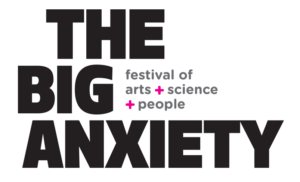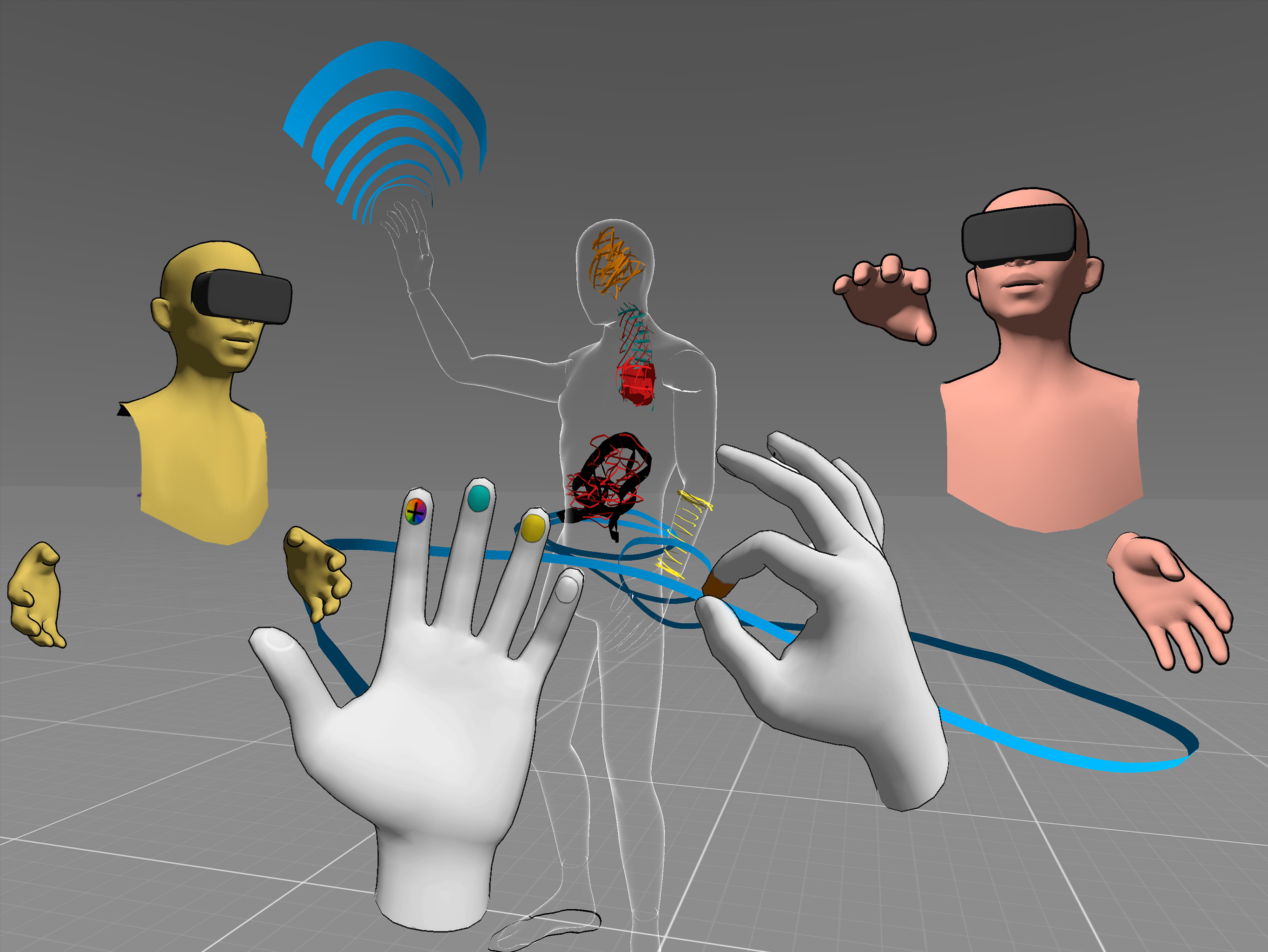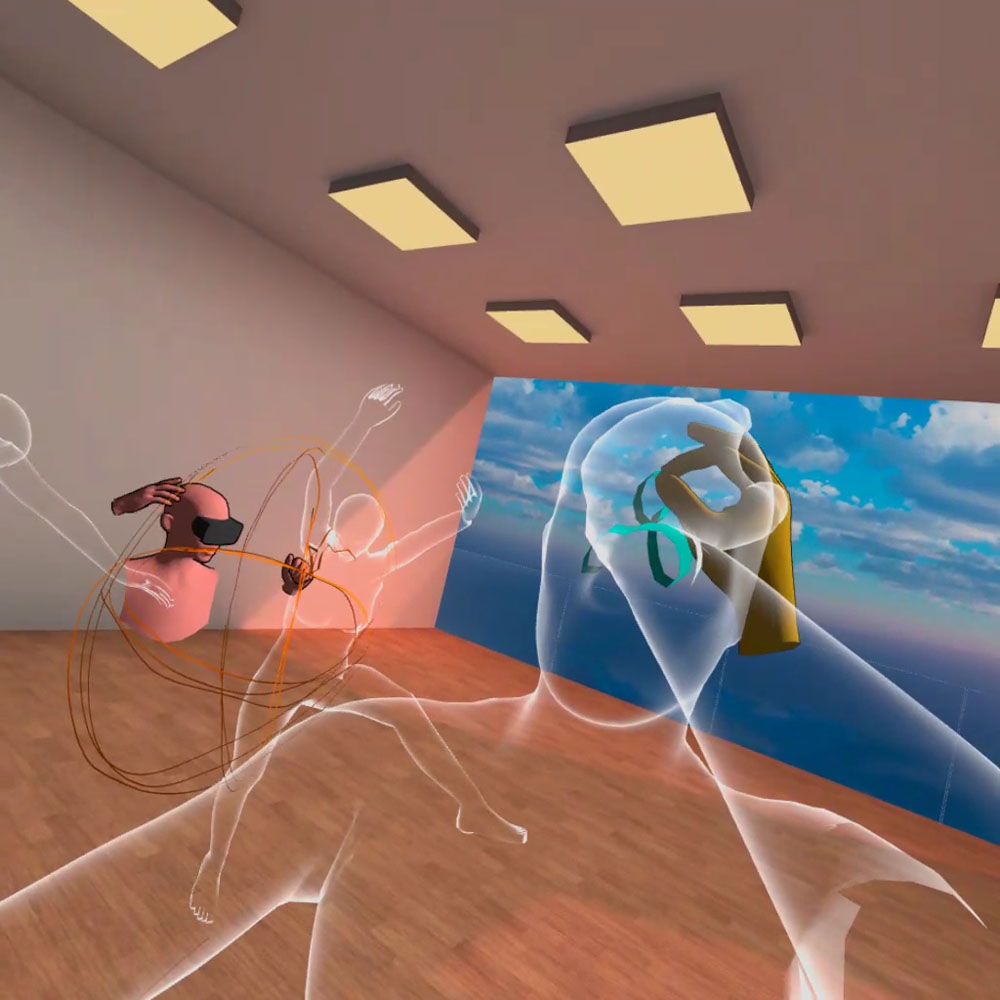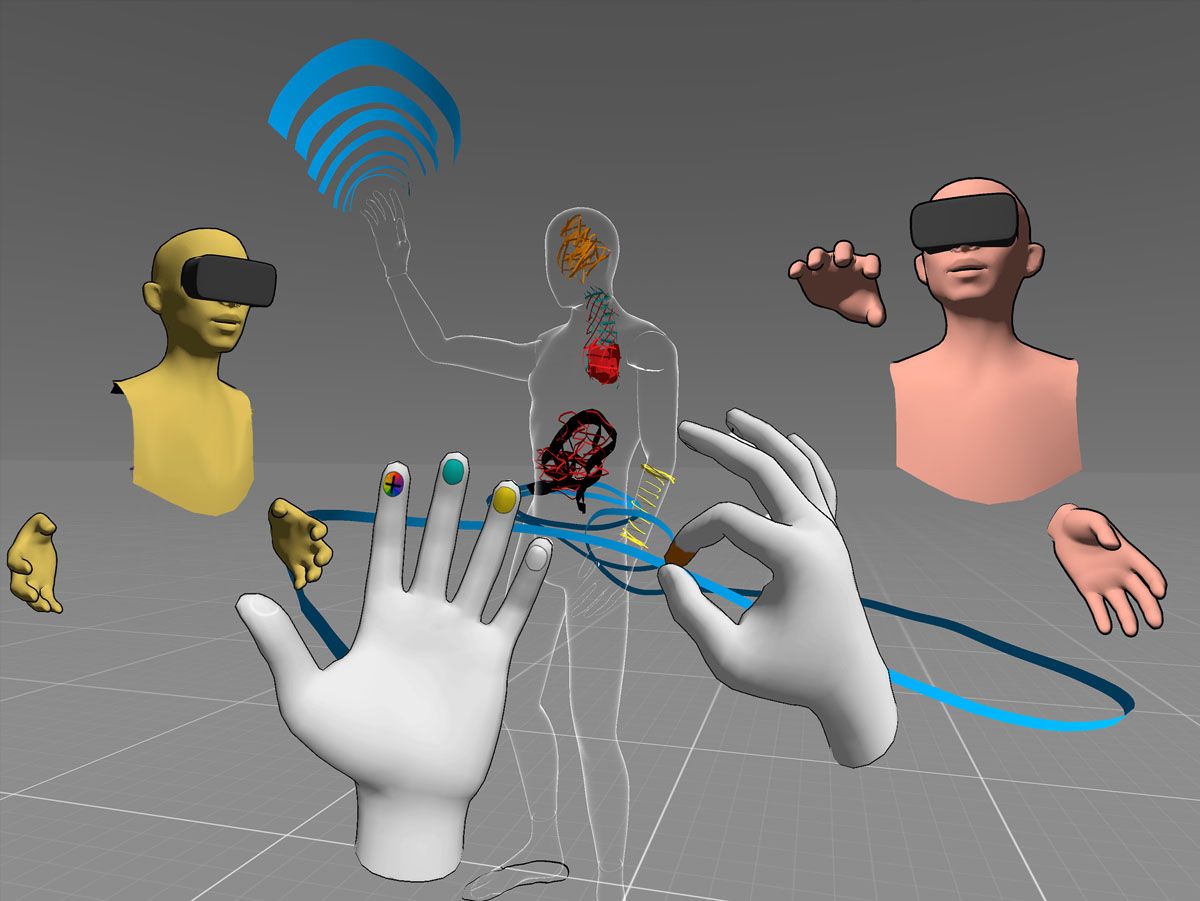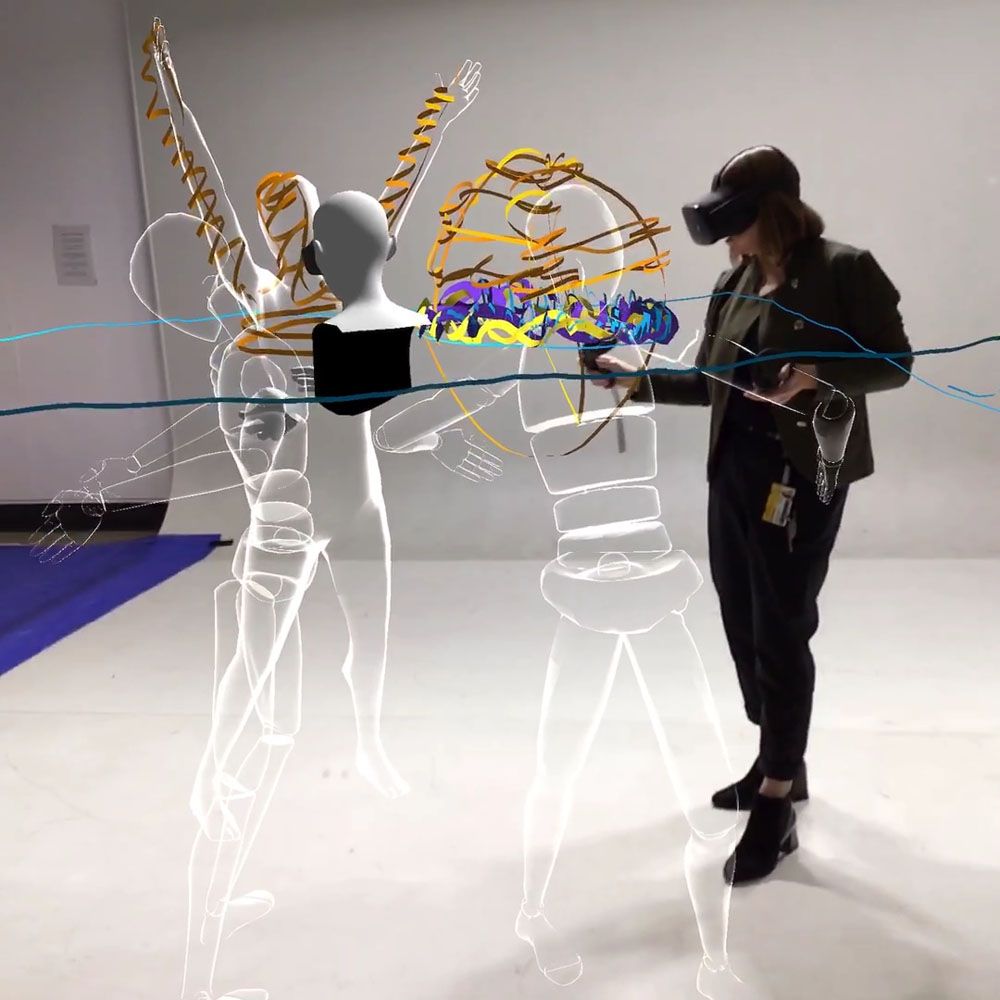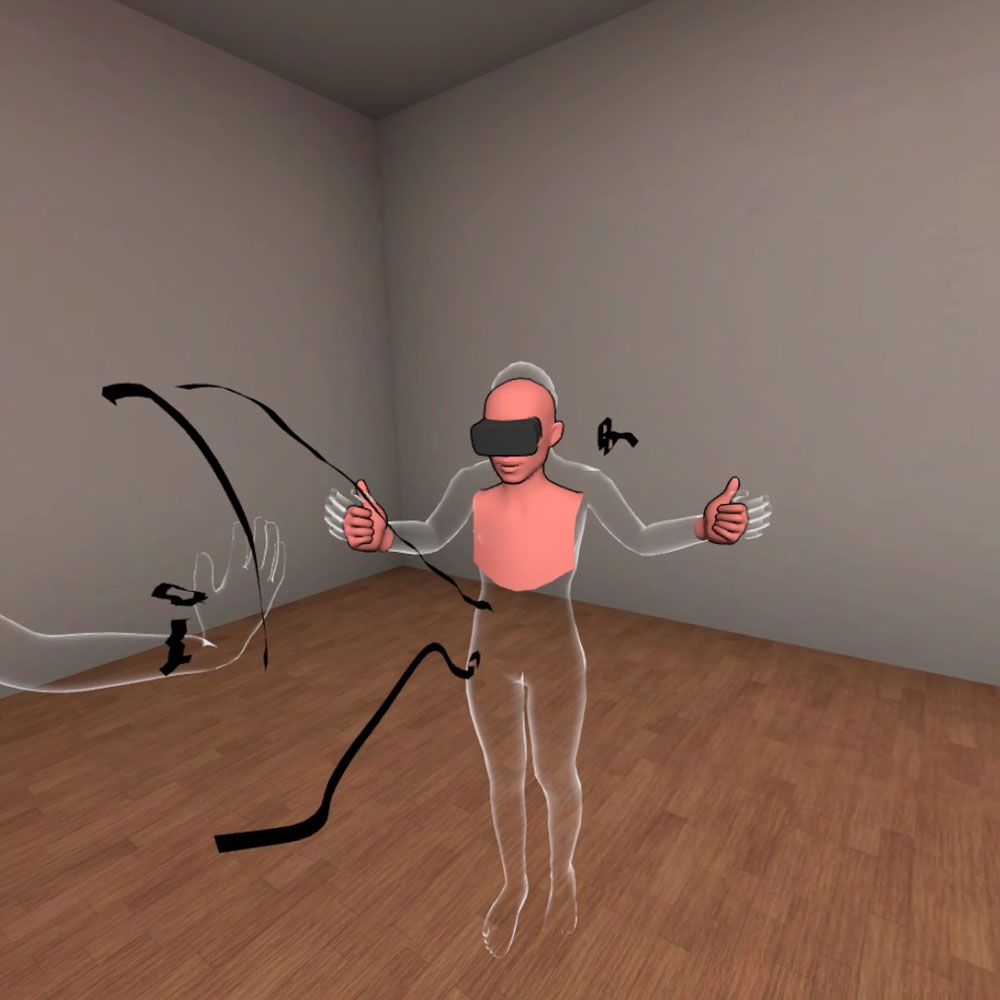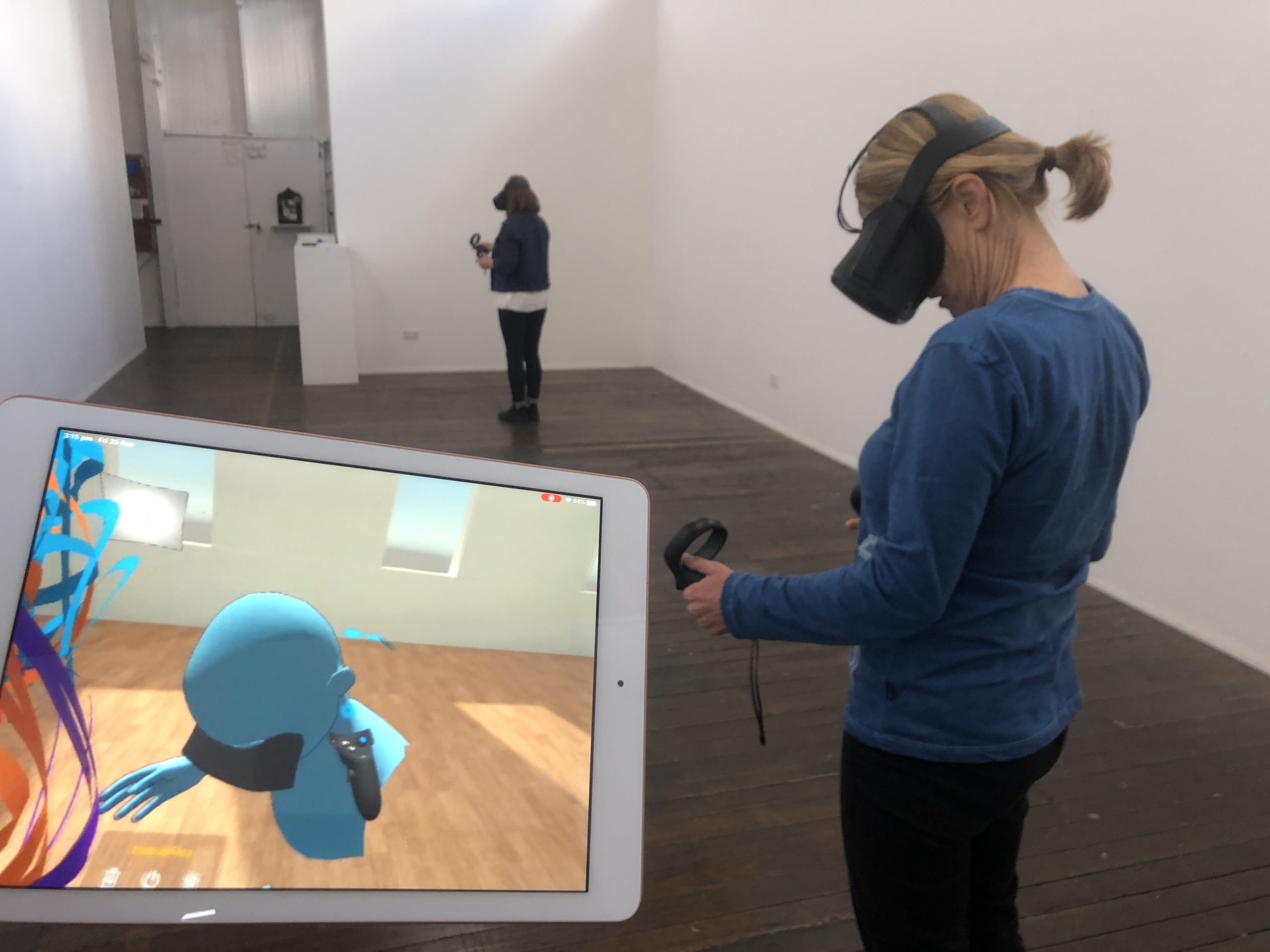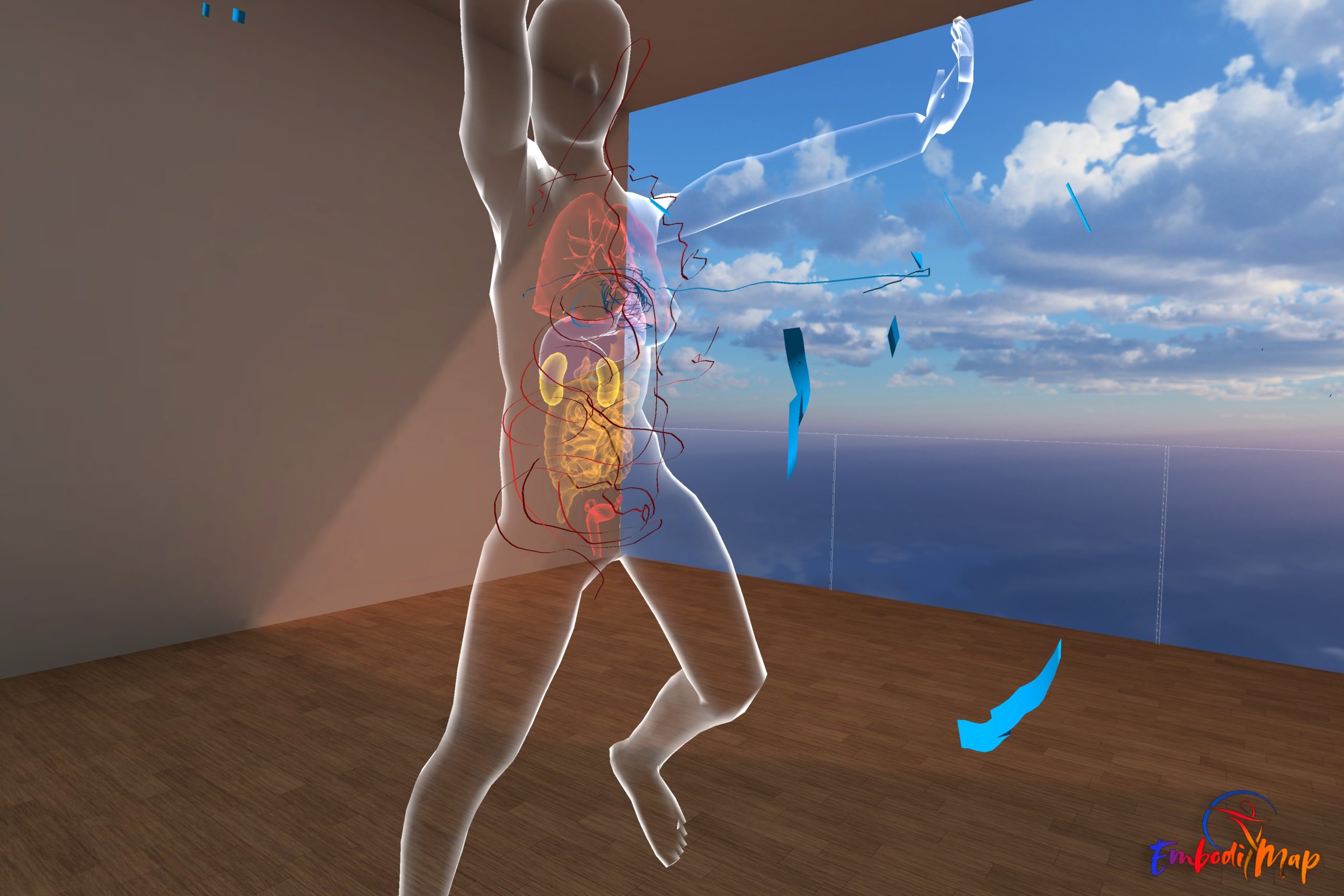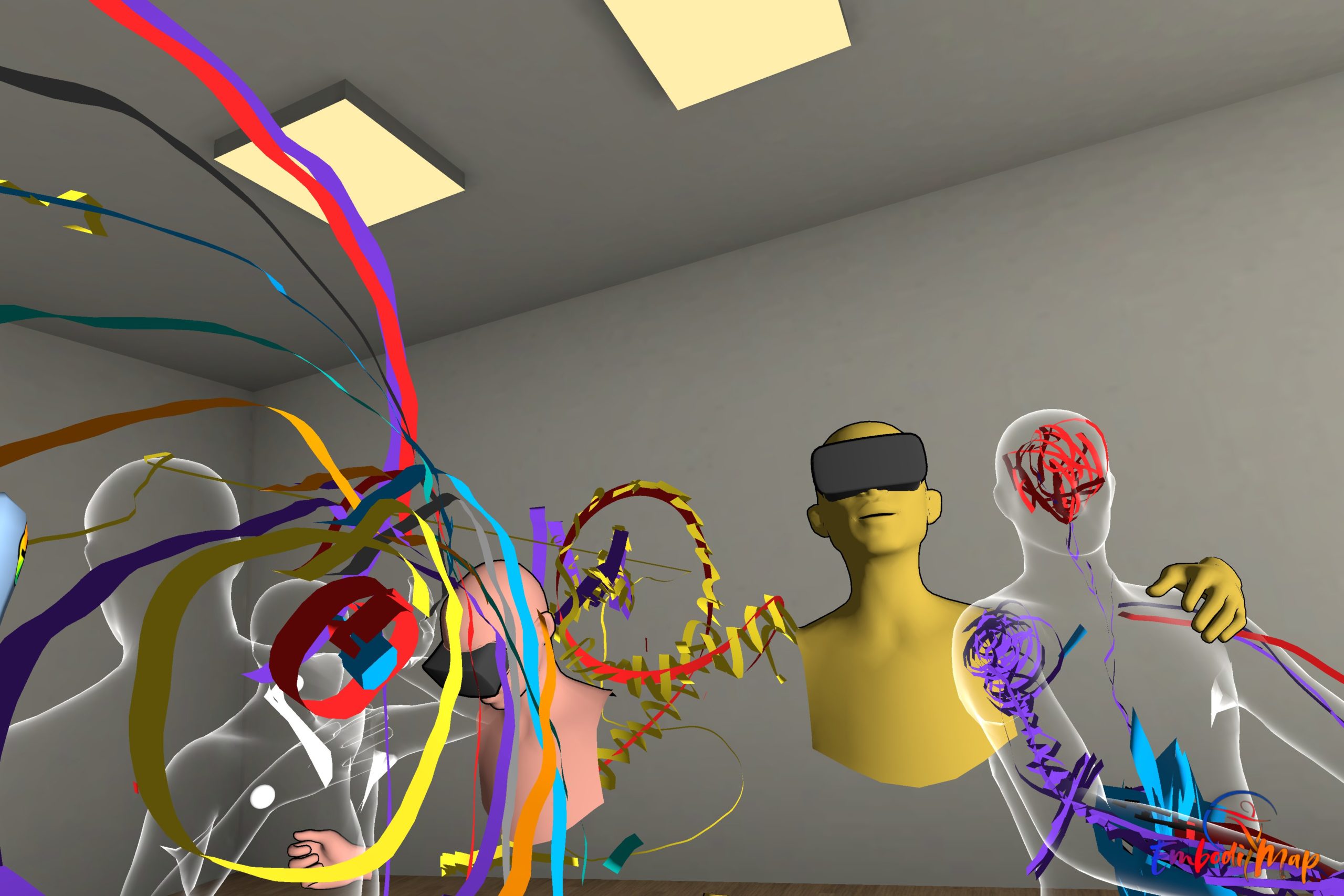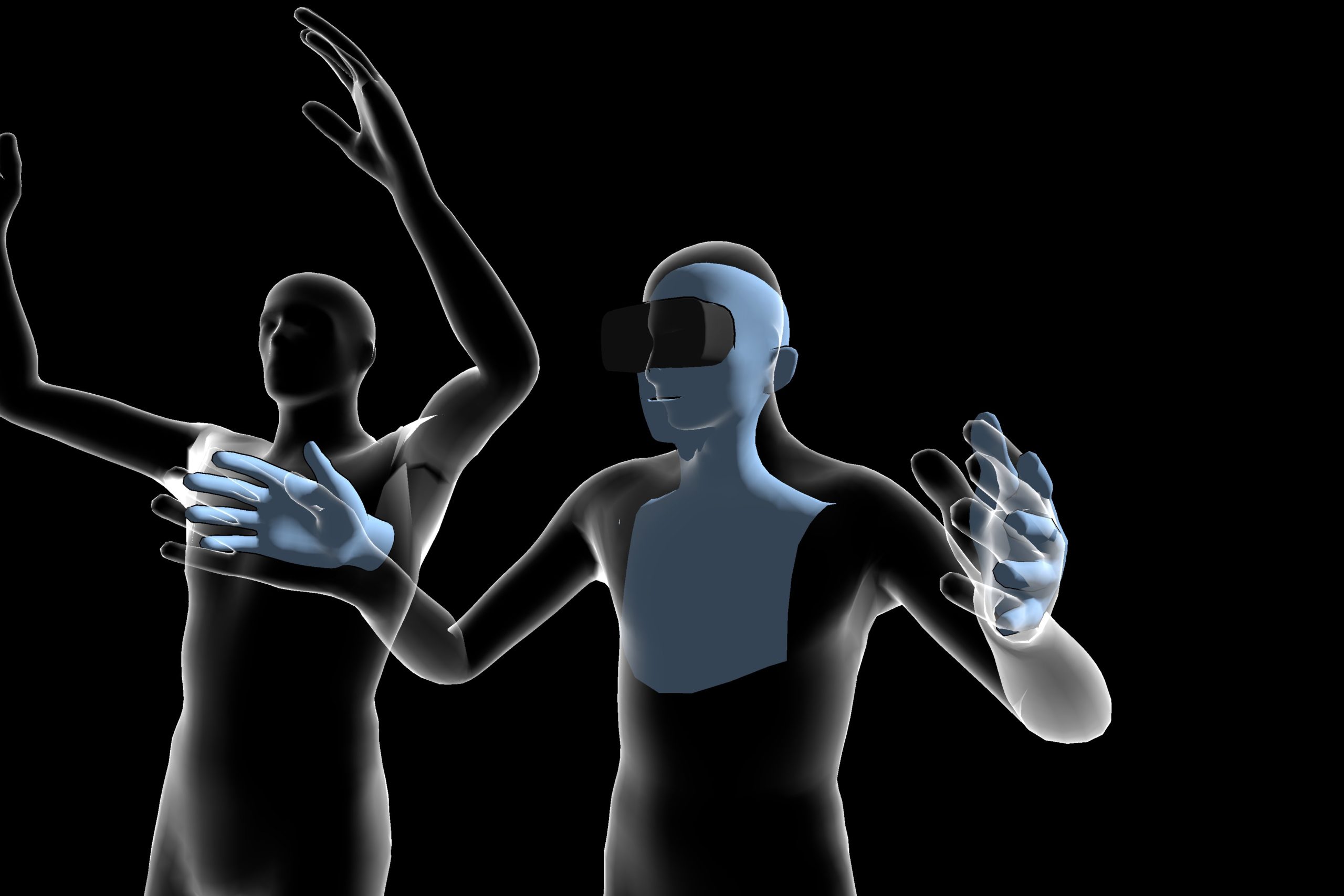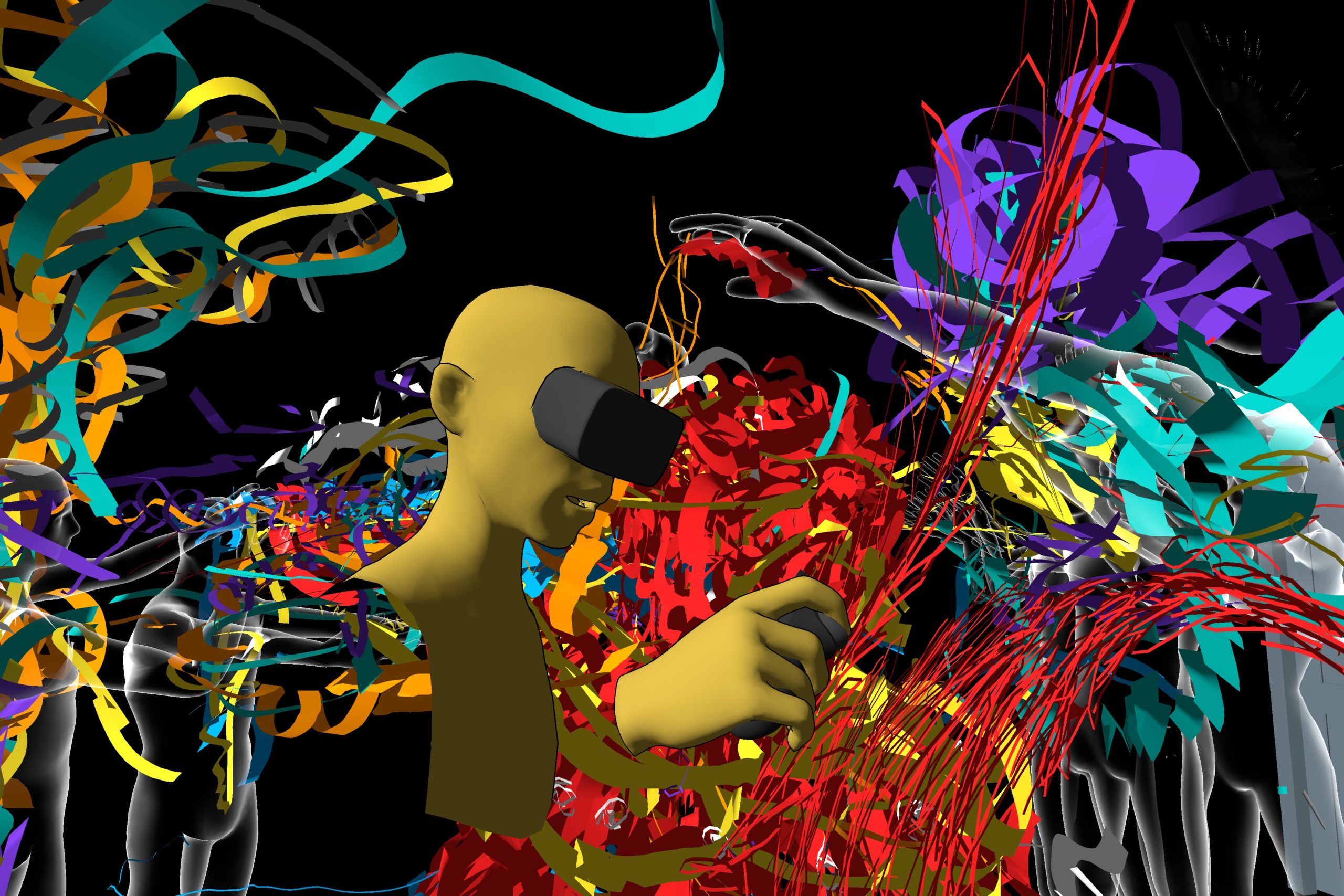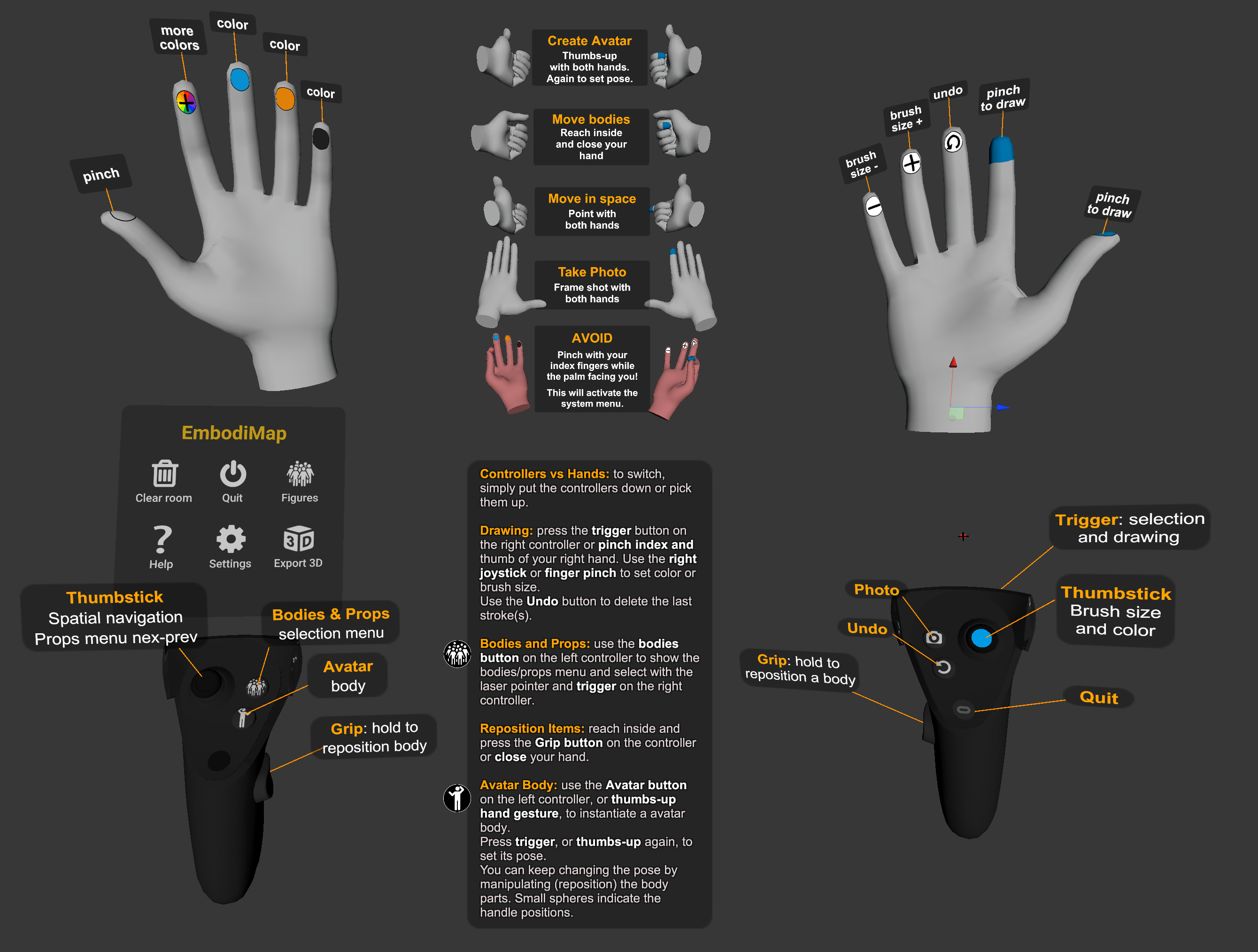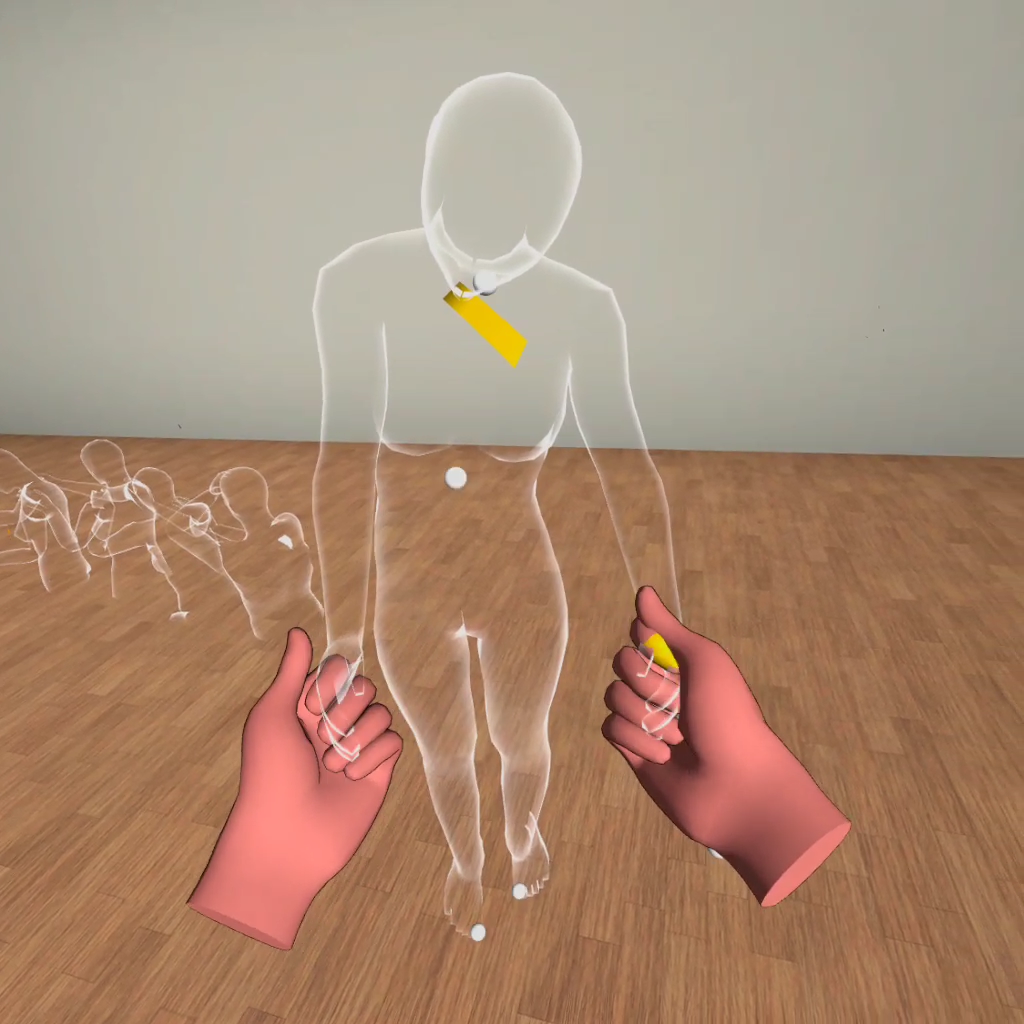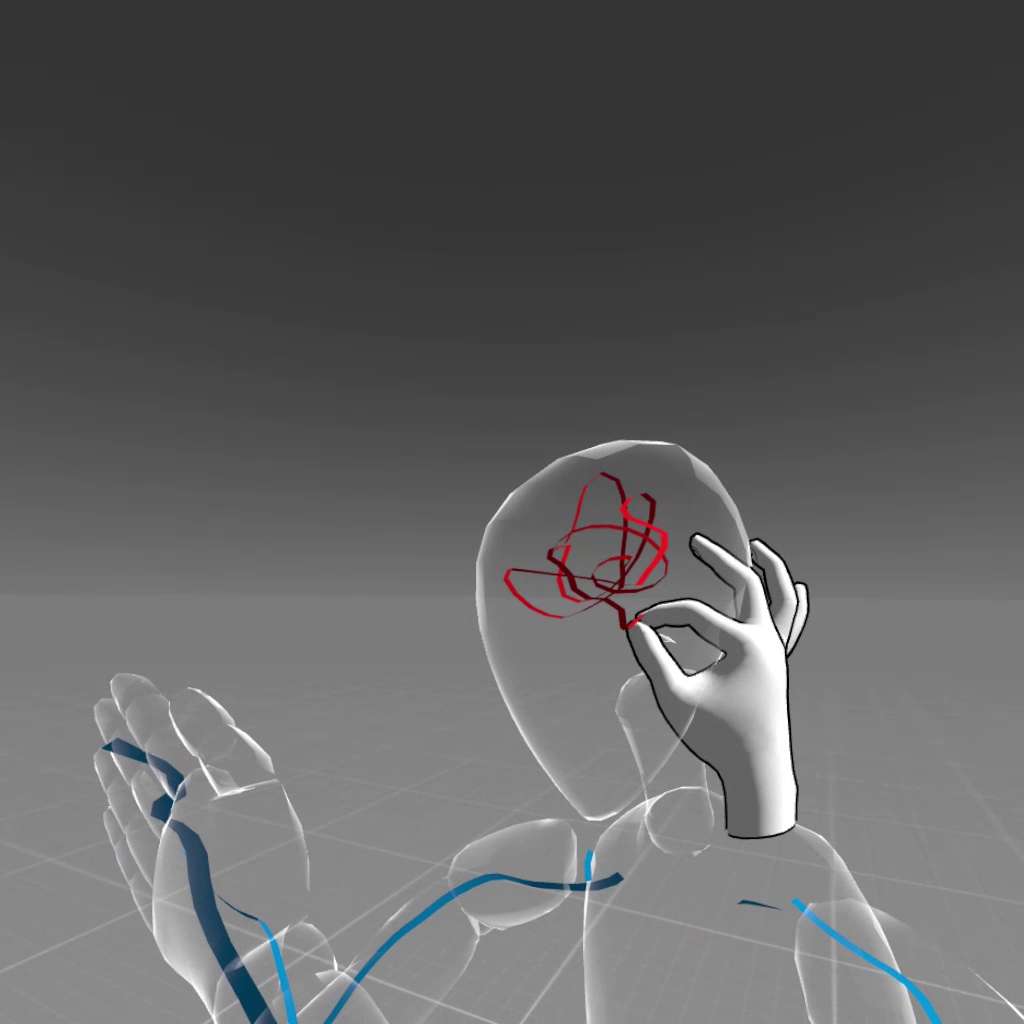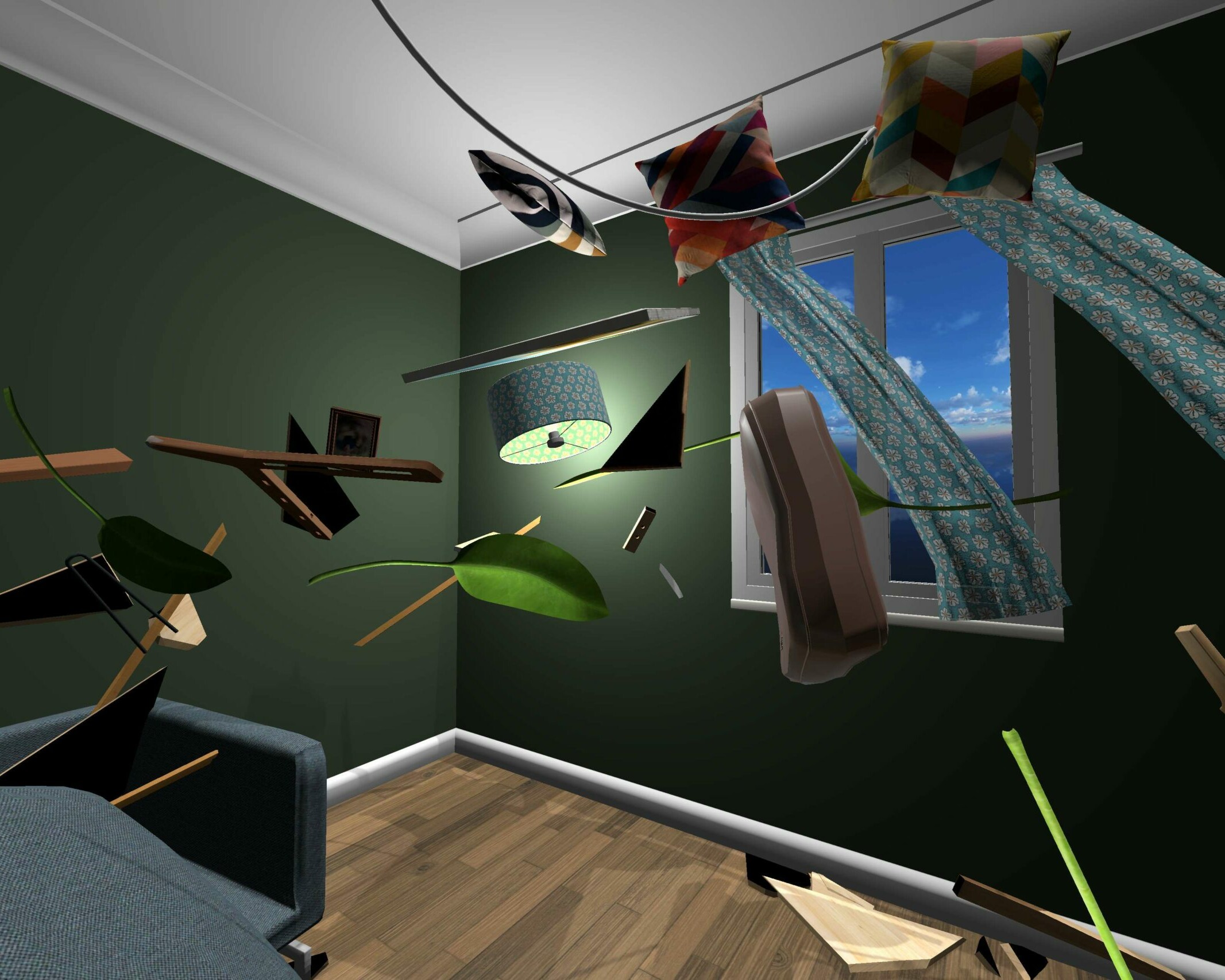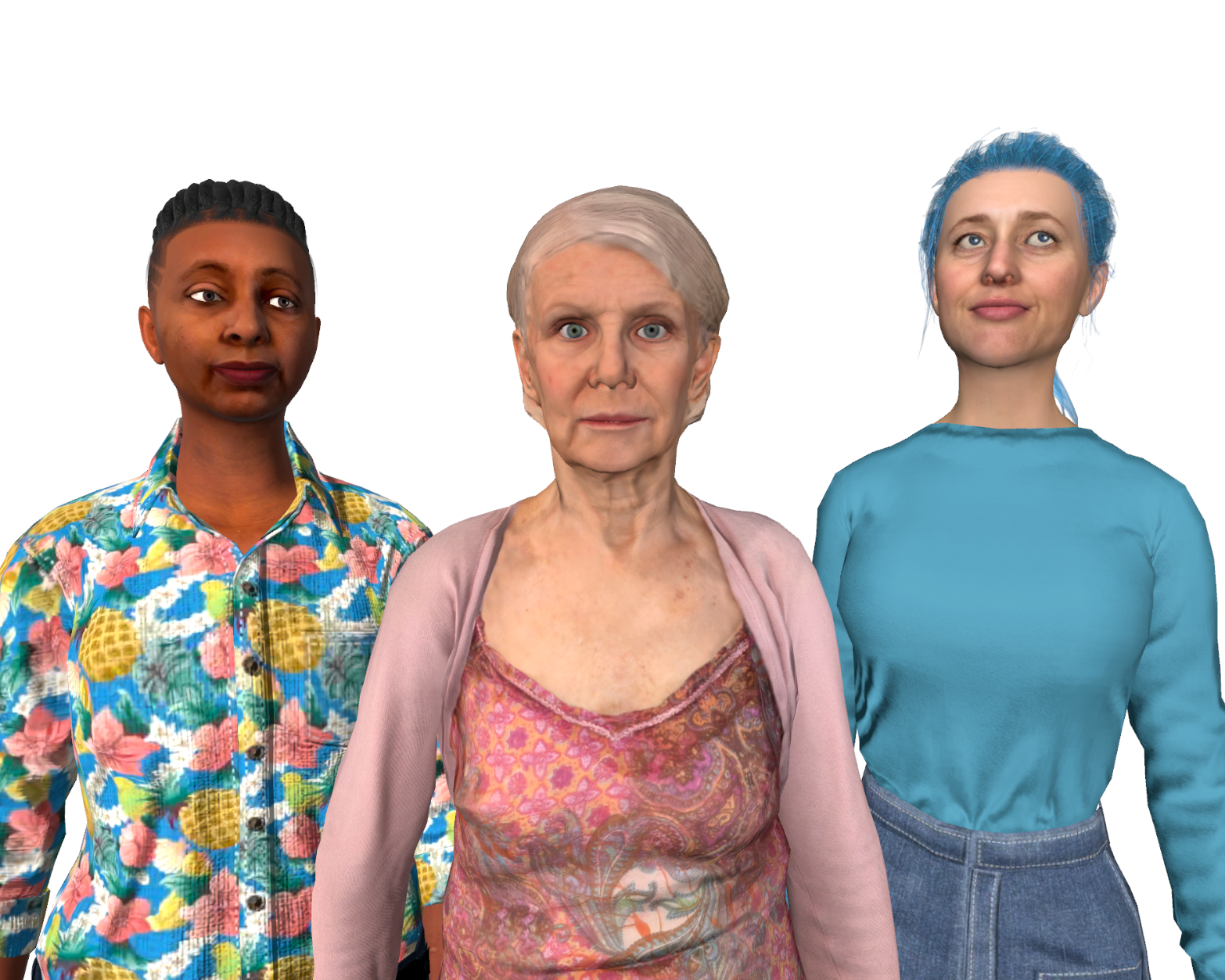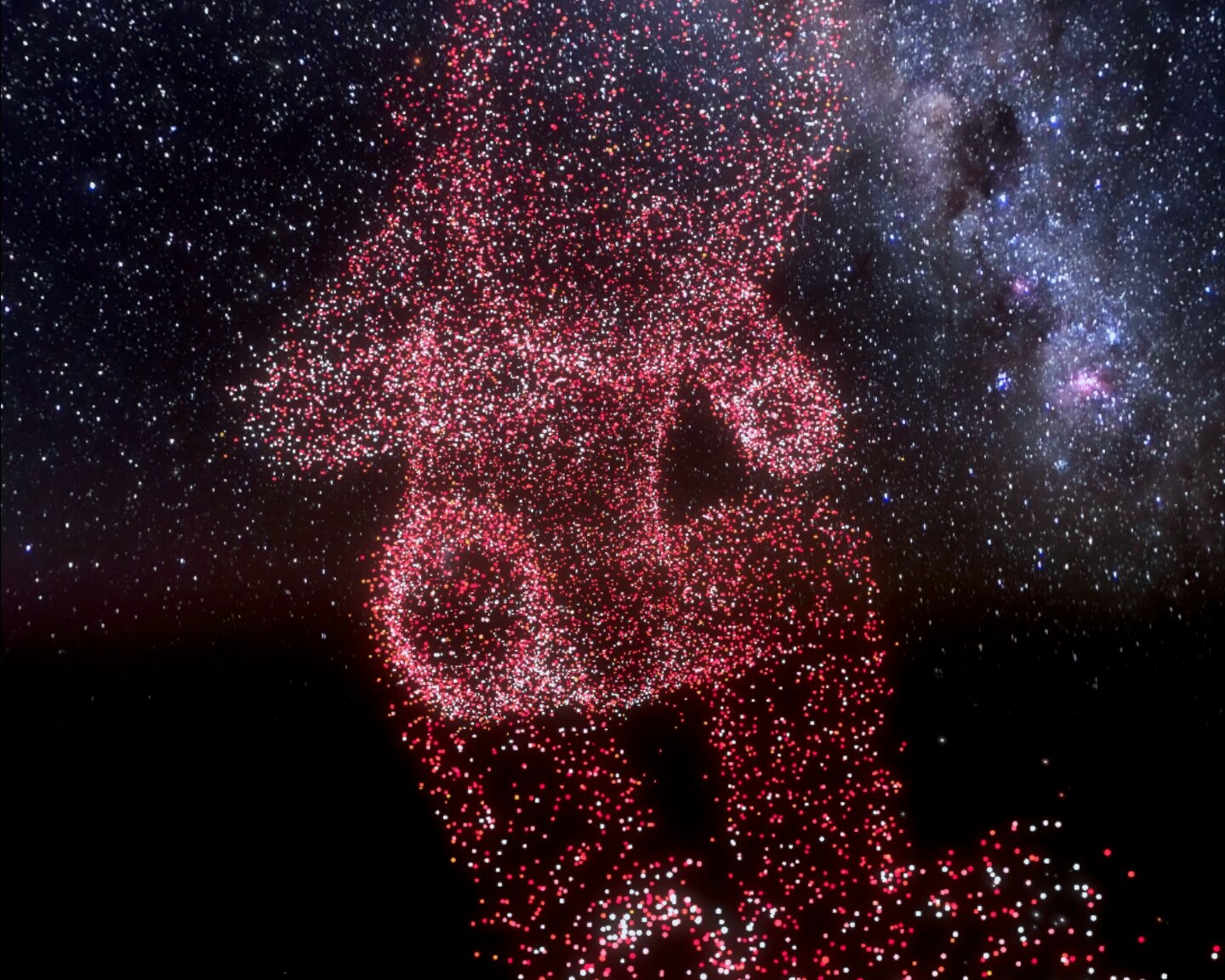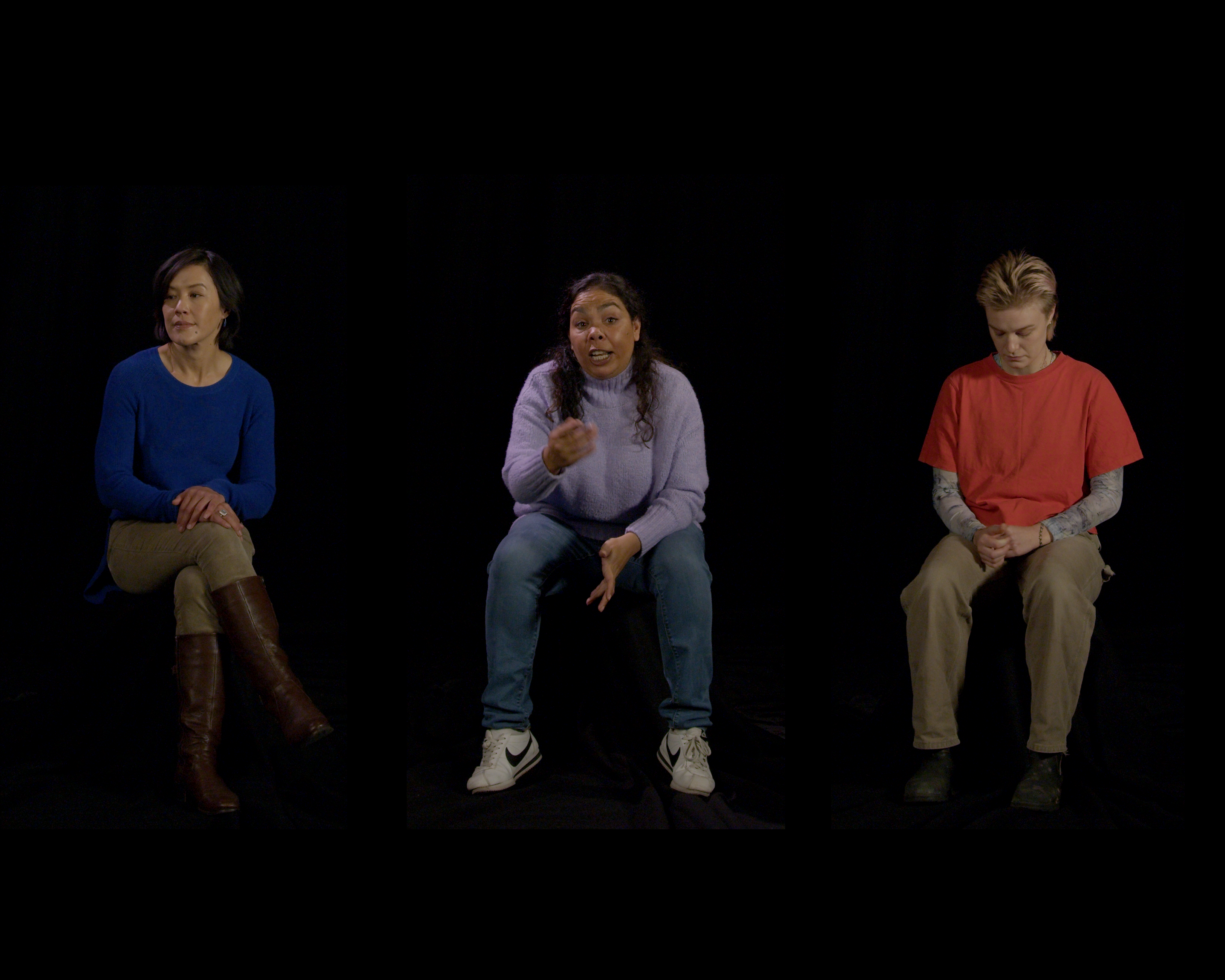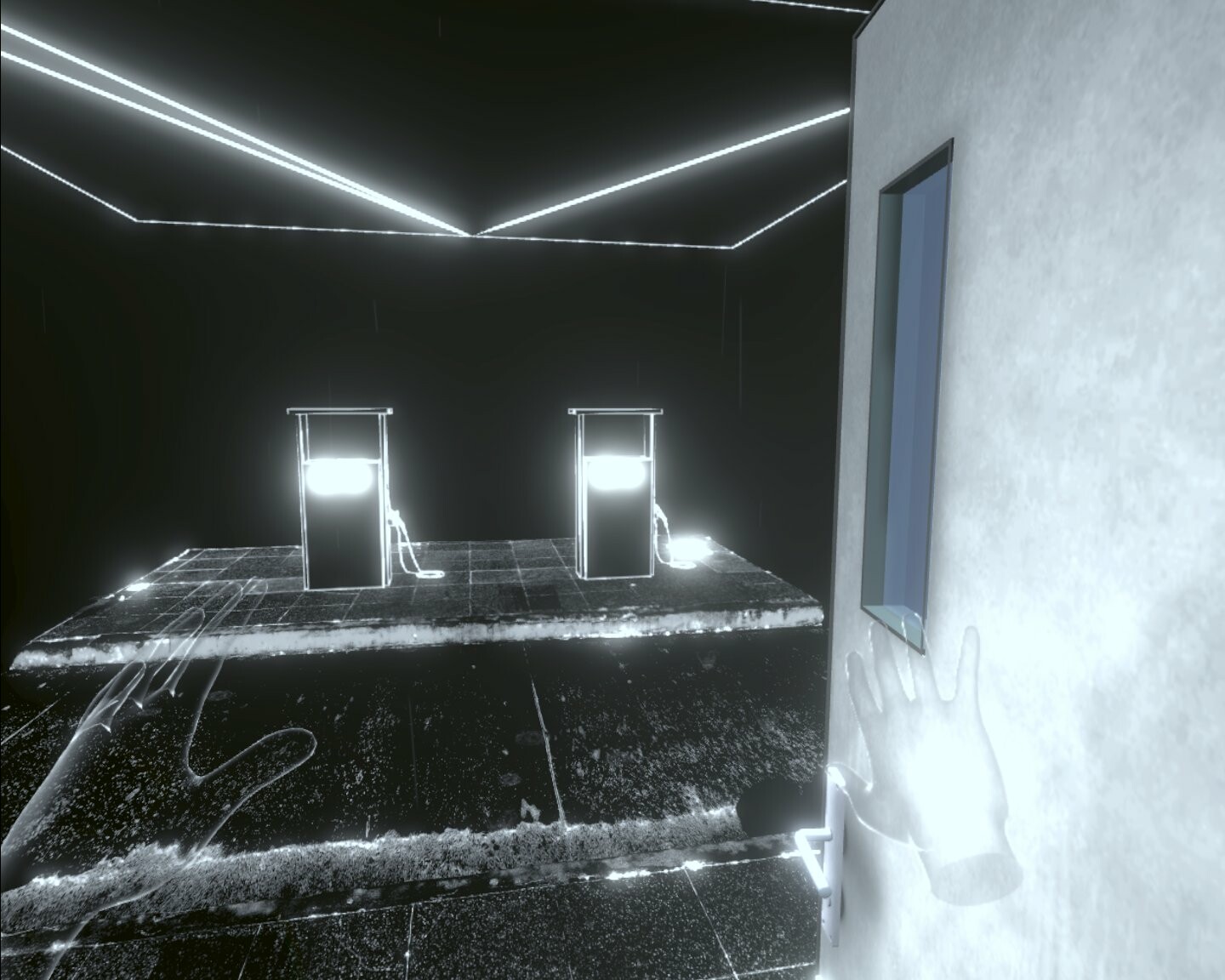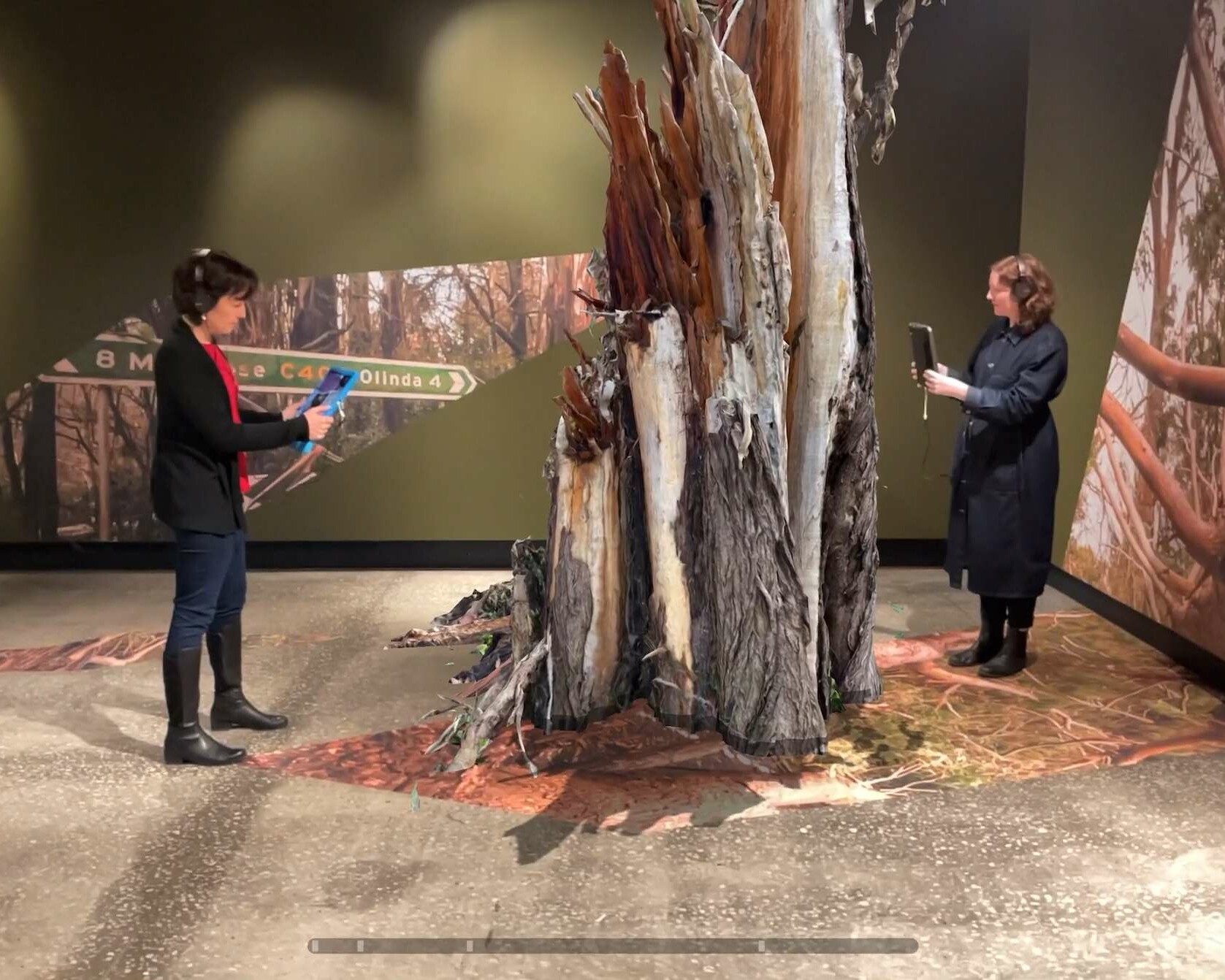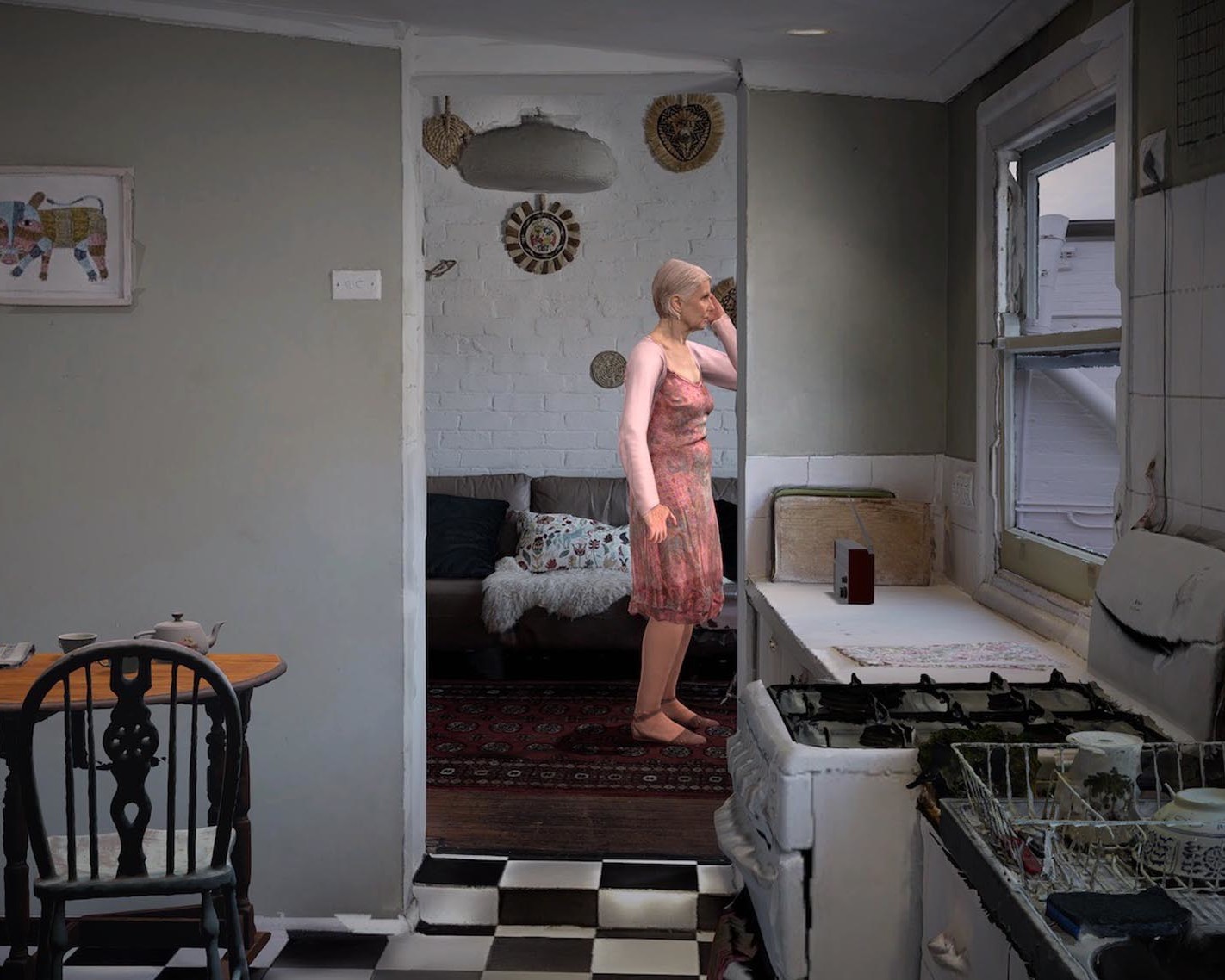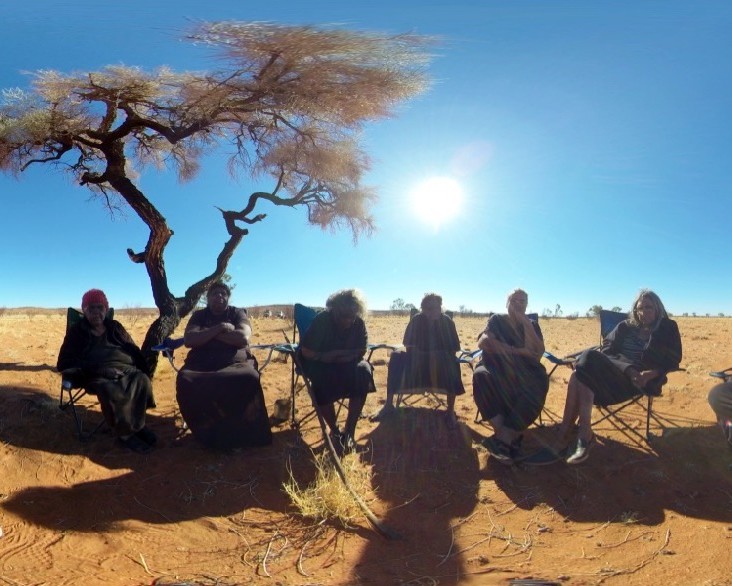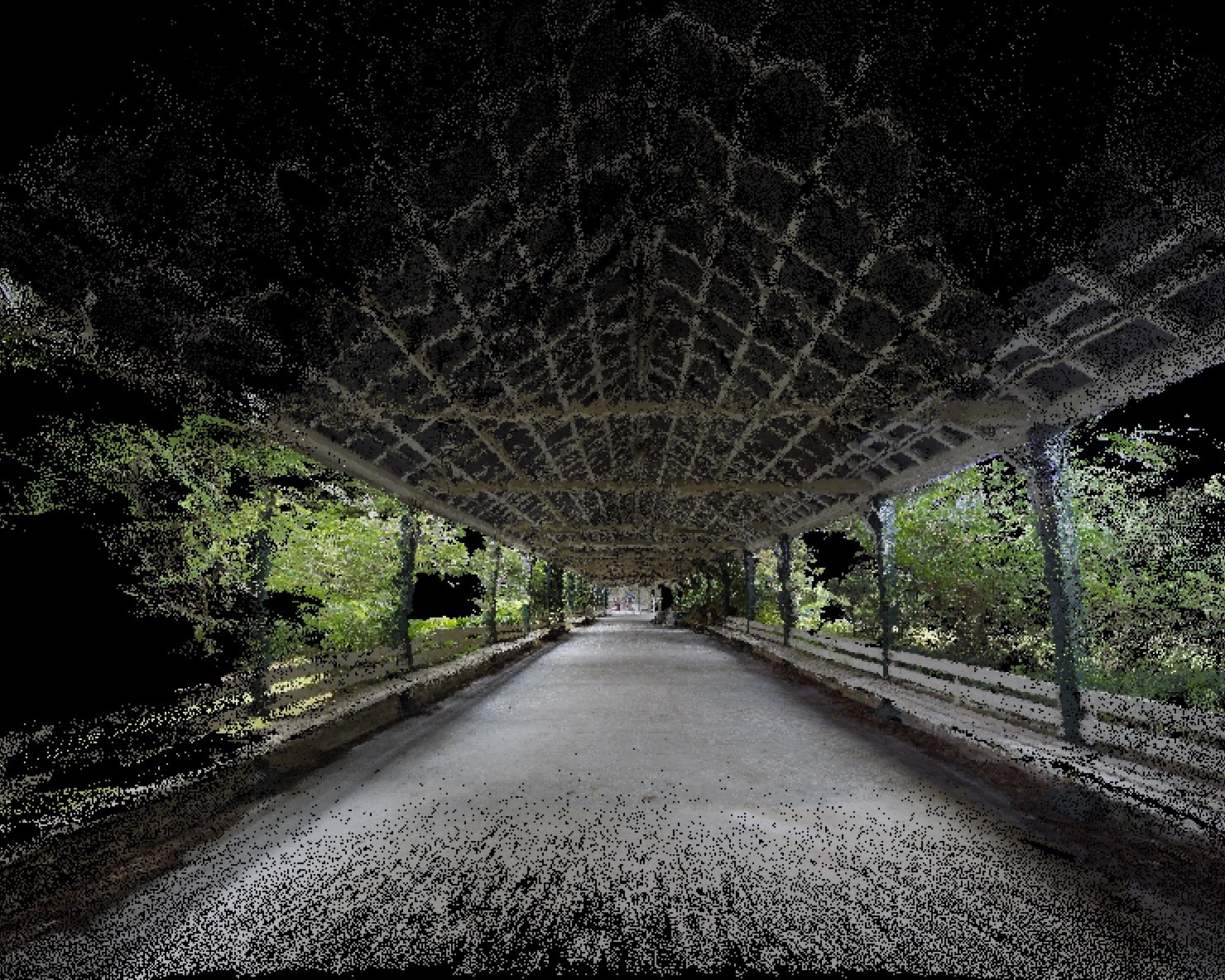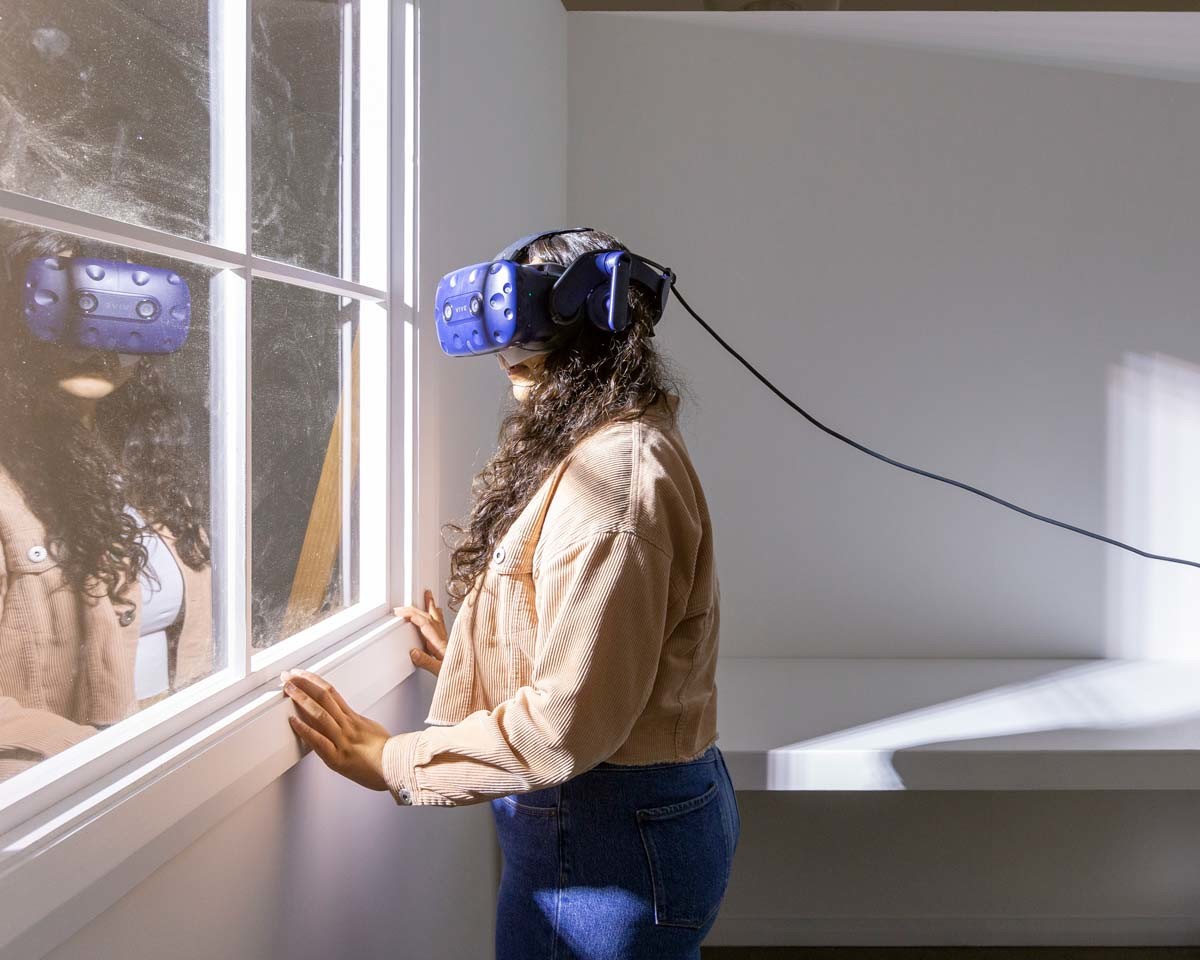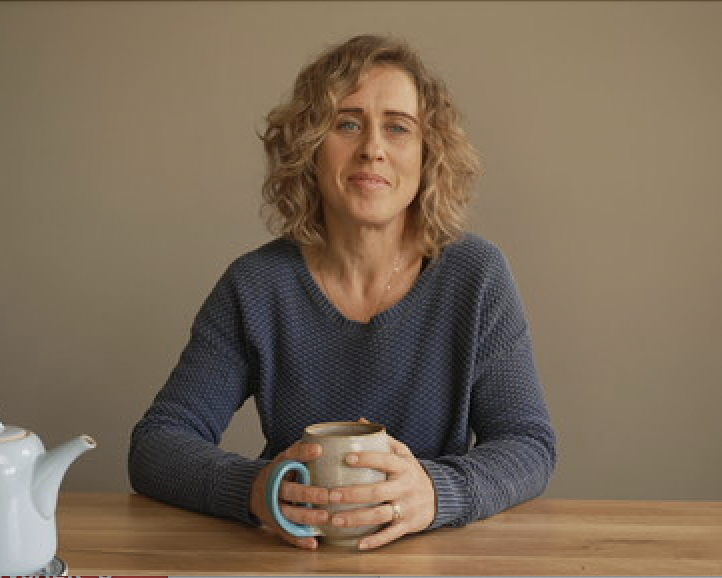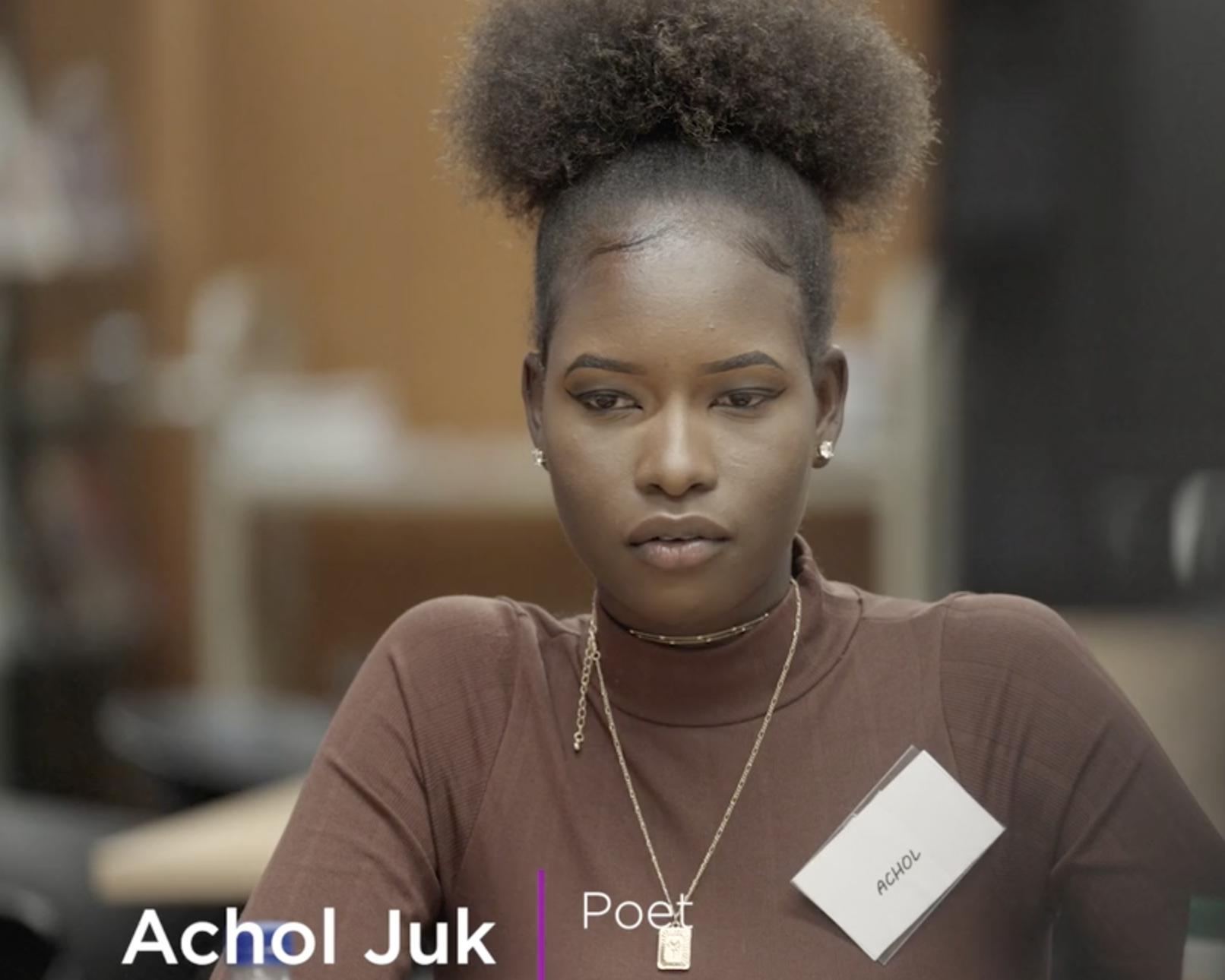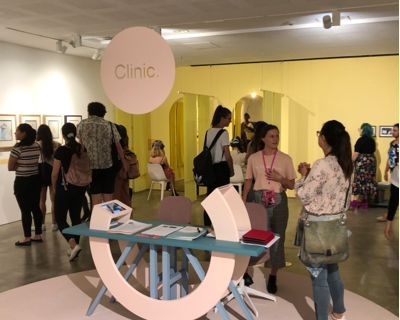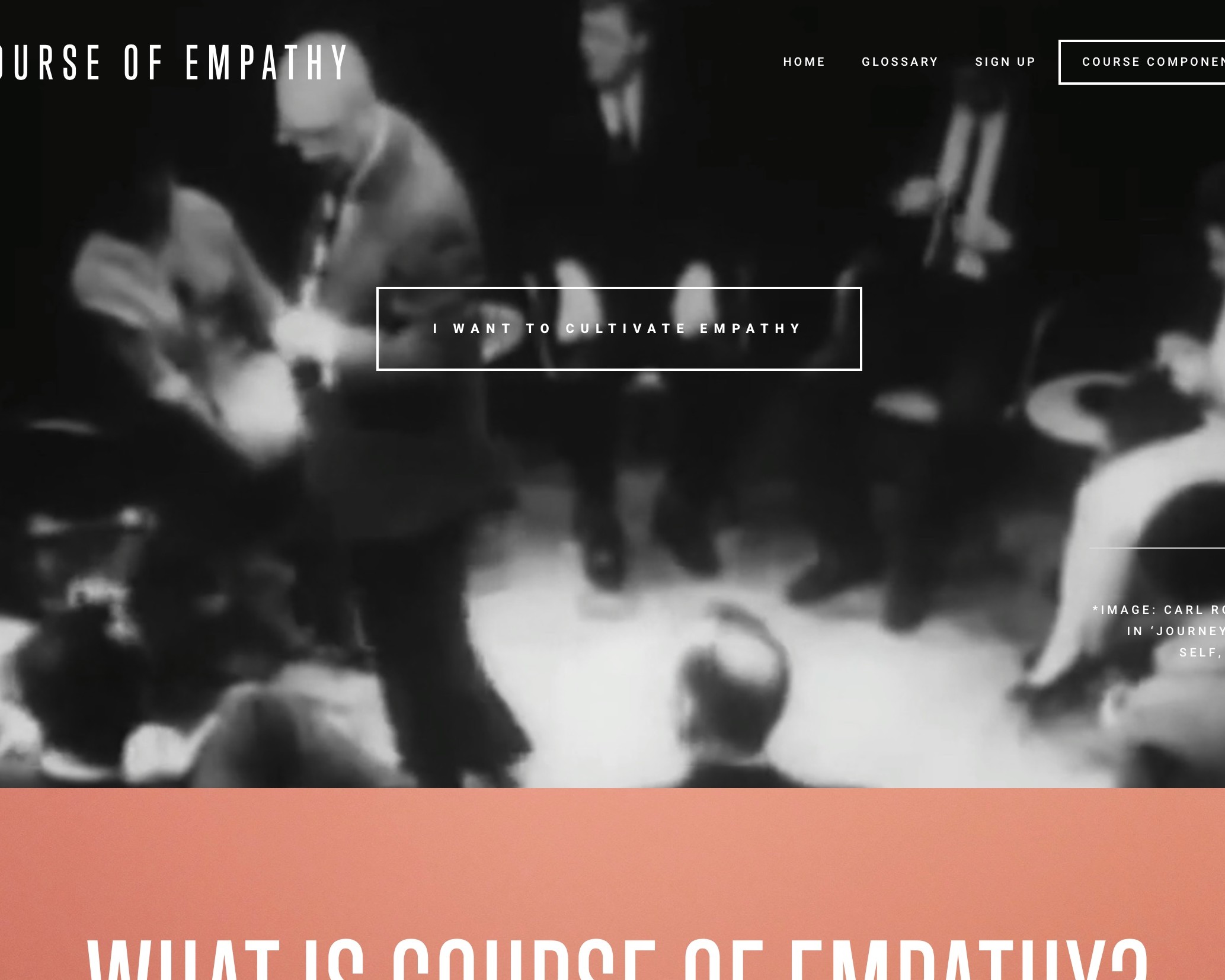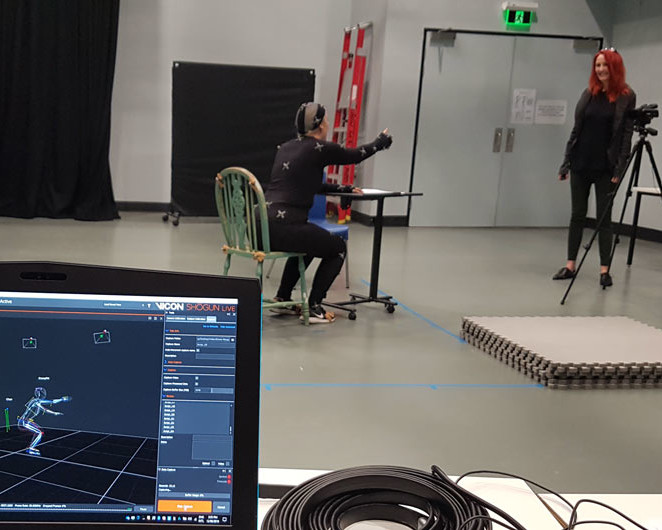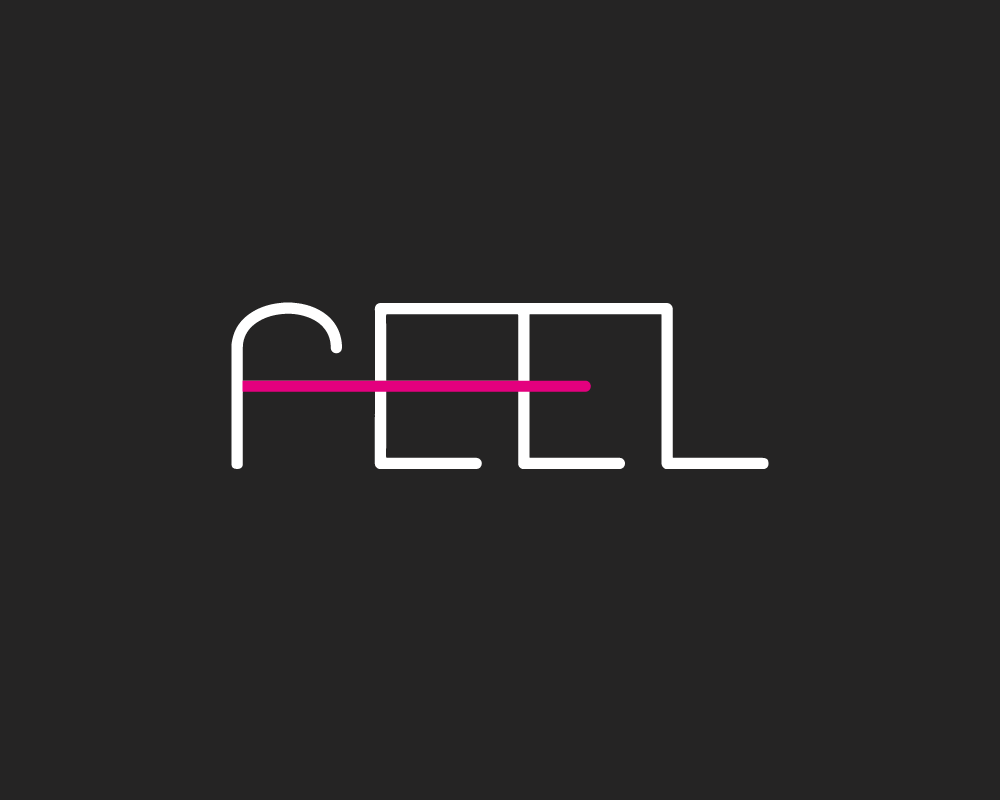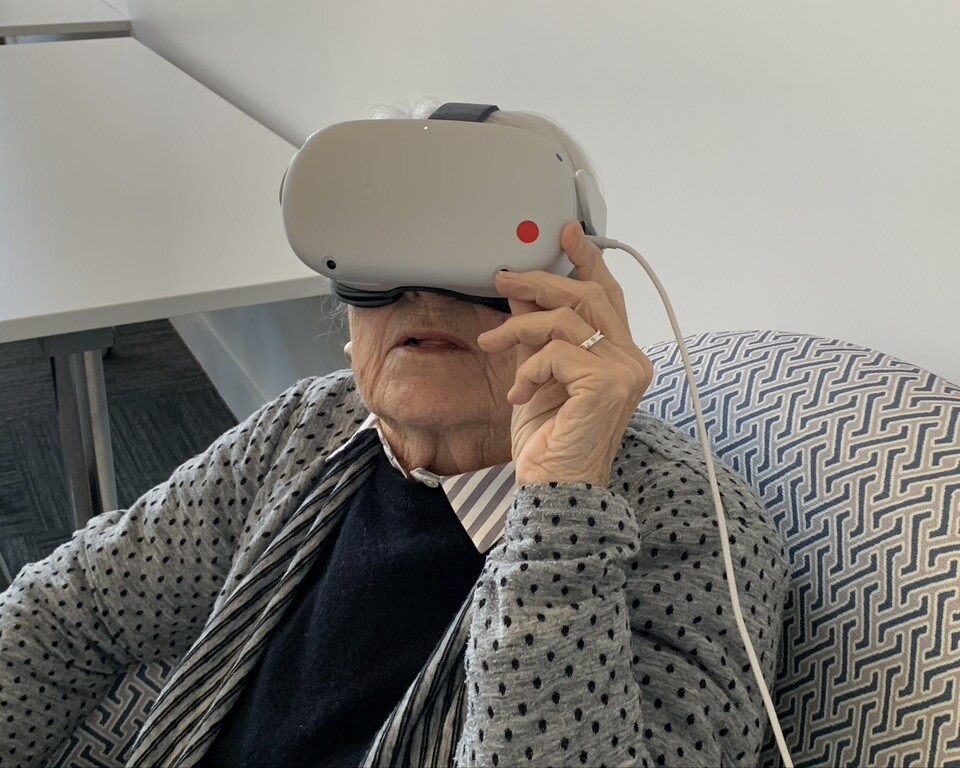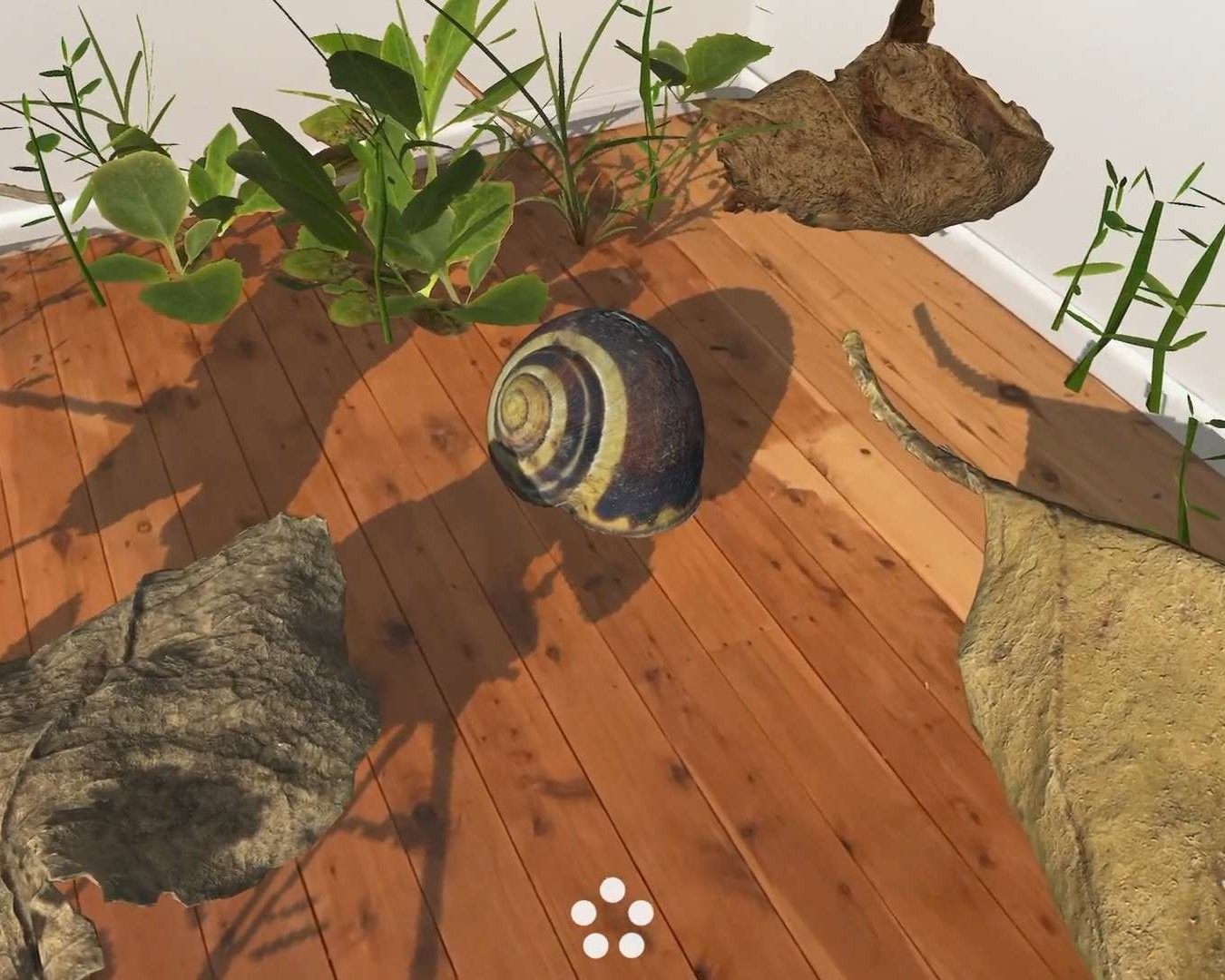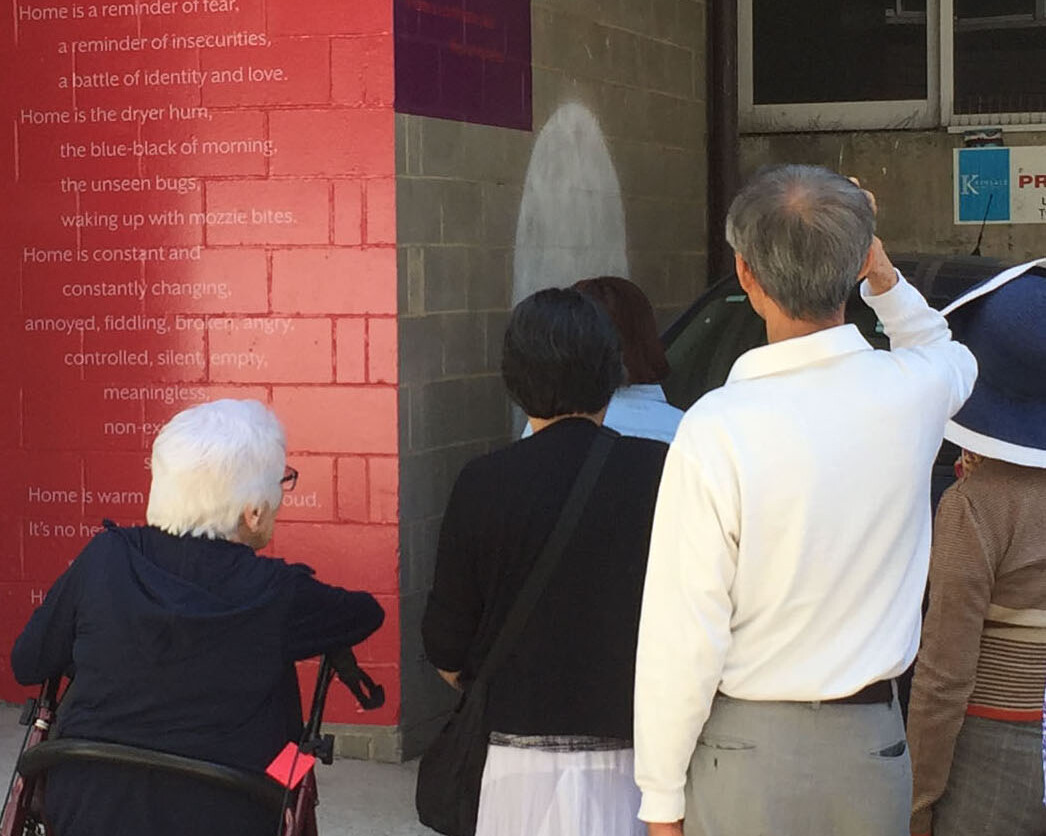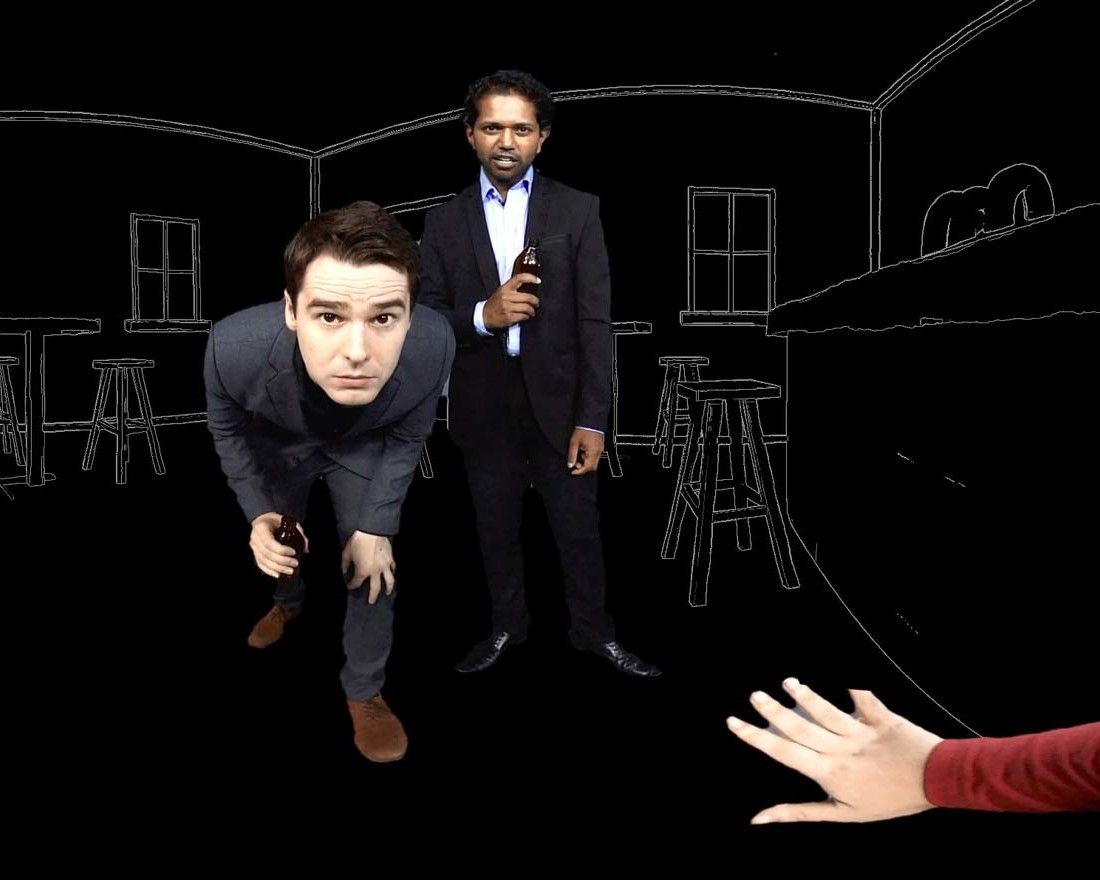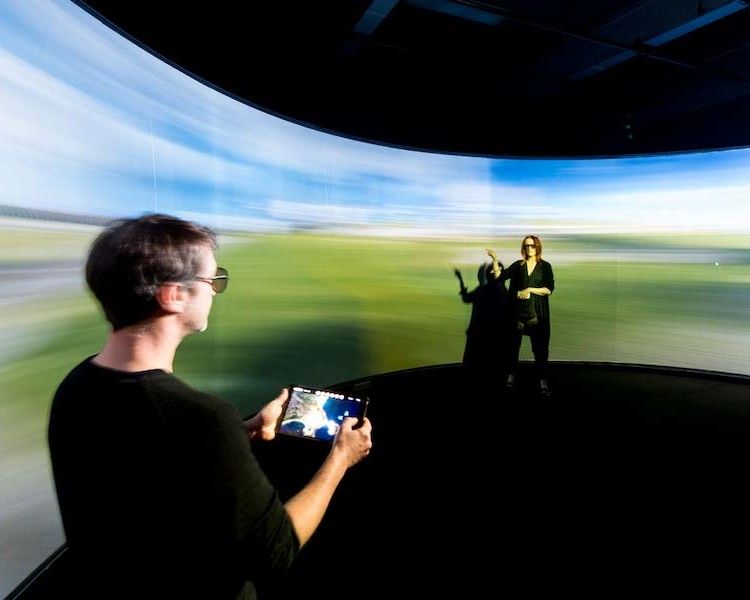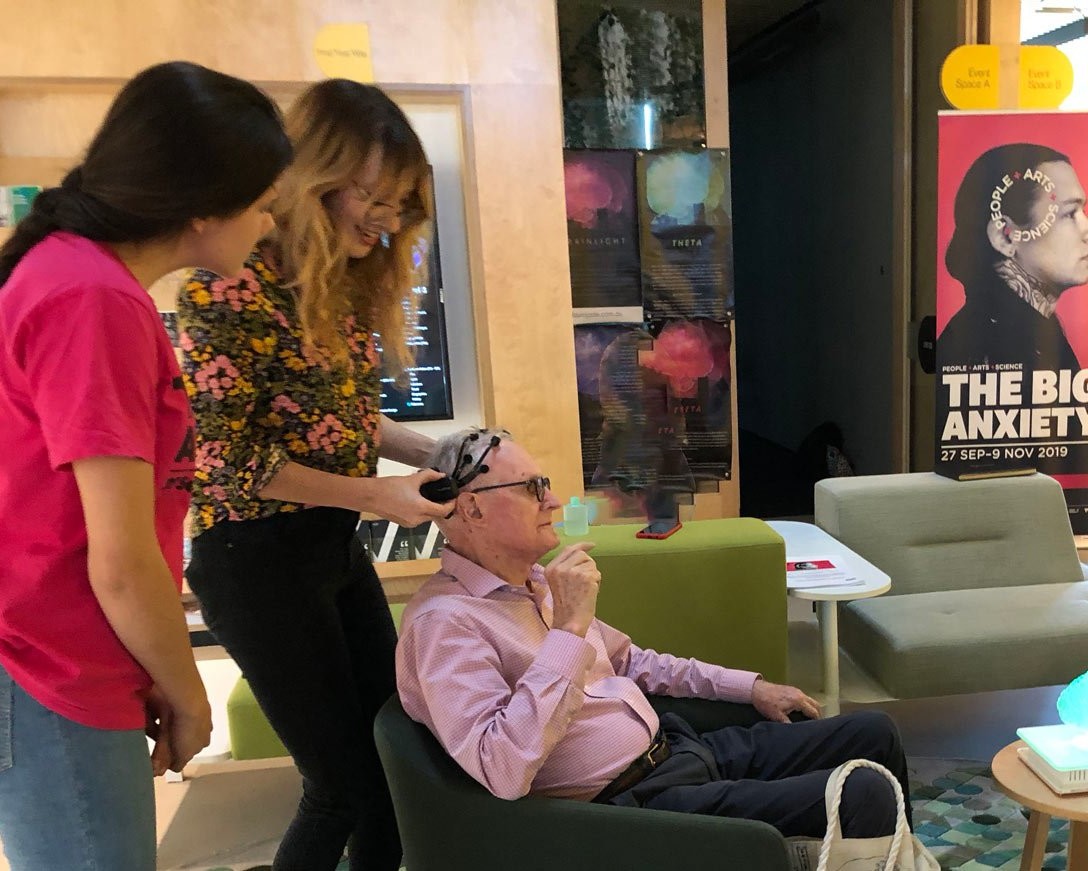Projects
Embodimap
Contributors
Projects
Embodimap
Contributors
EmbodiMap is a therapeutic/research tool that enables users to engage with and map their feelings, thoughts and emotions and how these are experienced within the body.
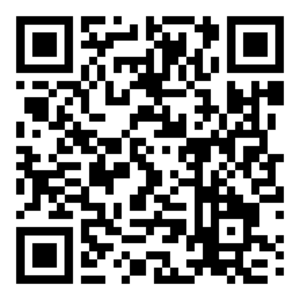
EmbodiMap was developed for the Oculus Quest VR platform. Download it for free here.
Supporting fEEL’s research into felt experience, and drawing on insights from somatic and sensori-motor psychotherapy, EmbodiMap invites participants to engage with a virtual 3D facsimile of the body, entering inside this form and using the tool to paint sensations as they are experienced inside the body. An advance on technologies/media that allow only surface drawing, EmbodiMap promotes a palpable, interactive engagement with the ‘avatar’ body.
An important feature of EmbodiMap is that participants can shape and alter the posture/pose of the body they work with. A motion-controlled interface enables users to transform the avatar body image by modelling poses that the avatar will then mirror. So, for example, if the painted avatar initially embodies a closed/anxious state, the user can go on to experiment with leading the avatar into a more open/con!dent stance/gesture.
Each time a feeling/emotion state is painted, the user can move away and start afresh, using a new body outline and leaving behind the painted vertical columns, each representing how the body felt at a particular moment in time. In this way, participants create a field of these 3D SenseMaps or emotion state maps, which tell a story of changing and processing emotion. These images can be saved, exported and revisited or worked on further.
EmbodiMap can be used and tailored by individuals or groups. It may be used with/by facilitators and/or therapists or in a self-directed way by individuals/groups.
EmbodiMap is designed to work with a number of therapeutic protocols/approaches including:
- Body Mapping
- Focusing
- Sensori-motor psychotherapy
- Trauma therapy
- Relational psychotherapy
- Yoga and meditation-based exercises or any other form of therapy that investigates embodied, psychosocial experience
It may also be used as a research tool for gathering data about embodied experience, for example with approaches such as:
- Body Mapping
- Microphenomenology
- Interpretative Phenomenological Analysis
Download the EmbodiMap flyer here.
EmbodiMap can be experienced solo or as a shared experience within a group. There is also the option of voice guidance in the form of meditation. Users interact in EmbodiMap with either VR controllers or use their hands directly. It operates on an untethered Oculus Quest VR headset. A session can be streamed wirelessly to an external monitor or as an Augmented Reality app on a tablet computer.
In 2020 the EmbodiMap prototype is available for trialing at https://www.oculus.com/experiences/quest/5315851651819402
Research programs trialing the tool include: Katherine Boydell et al, Women marginalised by mental health, disability or refugee status, ARC DP200100597
EmbodiMap Protocols are available here
* See, for example: https://www.researchgate.net/publica tion/302287957_Embodied_Ways_of_Storying_the_Self_A_ Systemat ic_Review_of_Body-Mapping
For systematic review: De Jager, A., Tewson, A., Boydell, K.M. (2016). Embodied ways of storying the self: A systematic review of body mapping. Qual Soc Res. http://nbn-resolving.de/urn:nbn:de:0114-fqs1602225.

